
Synonymes : chef de bord, pilote
- Transport - Logistique
- Ajouter aux favoris

Description métier
Le skipper professionnel assure tout d’abord le transport payant de passagers vers une destination fixée d’avance. Il peut également assurer le convoyage d’un voilier pour le compte d’un tiers propriétaire, locataire ou emprunteur du navire . Dans ce cas, il doit respecter le trajet et la destination établis par contrat.
Lors du transport, les passagers ont la possibilité de participer ou non à la manœuvre et à la conduite du navire . Si c'est le cas, le skipper doit veiller au respect des règles de sécurité.
Le skipper maîtrise parfaitement le droit maritime , la technologie et le matériel du navire et toutes les règles de navigation : abordage, balisage, signalisation…Il doit également avoir de solides connaissances en maintenance et en réparation car il doit être à même d'assurer les interventions de base sur son navire.
Pendant la saison touristique, il travaille le plus souvent au service d’organismes de vacances ou de loueurs de voiliers et emmène des estivants en croisière . Hors saison, il est souvent employé pour le convoyage de bateaux de particuliers, notamment vers les Caraïbes ou les Antilles.
Sens des responsabilités, sang-froid et grande résistance à la fatigue physique et nerveuse sont des qualités indispensables pour exercer ce métier.
Études / Formation pour devenir Skipper
En tant que professionnel de la voile , le skipper est le plus souvent déjà titulaire du BPJEPS activités nautiques, voire du DEJEPS. Renseignements auprès des Délégations académiques à la jeunesse, à l'engagement et aux sports ( DRAJES )
Pour devenir skipper professionnel , il faut obligatoirement être titulaire du brevet de capitaine de 200 voile de niveau bac. Ce diplôme est délivré par les Dirm (Directions interrégionales de la Mer) et peut se préparer en lycée maritime.
Enfin, le CAP réparation, entretien des embarcations de plaisance et le bac pro maintenance nautique sont des plus.
À savoir : au-delà de 30 passagers, le skipper ne peut piloter que des voiliers d’une longueur inférieure à 25 mètres. Il n'y a pas de limitation de longueur si les passagers sont moins de 30.
Le skipper est recruté sur contrat de transport de passagers ou sur contrat de convoyage par des organismes ou des particuliers.
Sa rémunération dépend de la destination, de la durée du trajet, de la taille du voilier, du nombre de passagers (entre 200 € et 350 € environ par jour pour un convoyage) et de la difficulté de navigation.
Evolutions de carrière
Après quelques années d’expérience professionnelle, un skipper peut prendre la responsabilité d’une entreprise de vente ou de location de navires de plaisance.
Il peut aussi devenir chef de base nautique ou se diriger vers l’enseignement et la formation, à condition d’obtenir les diplômes correspondants.
Josée Lesparre © CIDJ - 14/06/2022
Josée Lesparre © CIDJ - 14/06/202209/2024
Crédit photo : Epic Stock Media - Fotolia
FFV - Fédération française de voile
Métiers liés
- Loueur / Loueuse de bateaux
- Moniteur / Monitrice de voile
- Marin de commerce
- Batelier / Marinier
- Directeur / Directrice d'équipements de loisirs et sportifs
- Marin pêcheur
- Maître-nageur sauveteur / Maître-nageuse sauveteuse
- Officier de marine marchande
- Moniteur / Monitrice de permis bateau de plaisance
Centres d'intérêts
- Se déplacer souvent, voyager
Vous êtes à la recherche d'un job étudiant, d'un CDD, d'un CDI, à temps partiel ou d'un contrat en alternance ? Le CIDJ vous propose sa sélection de jobs pour les jeunes, offres d'emploi, offres en alternance, dans toute la France et dans tous les secteurs.

Métier Skipper : missions, formations et salaire

Le métier de skipper est une profession passionnante qui allie navigation et aventure. Découvrez tout ce qu’il faut savoir sur le métier de skipper dans cet article : ses missions, les compétences requises, sa formation, les débouchés du métier, ainsi que son salaire.
Quel est le rôle d'un skipper sur un bateau ?
Le skipper s'occupe du convoyage de bateaux pour le compte d'un tiers ou du transport de passagers pendant la saison touristique . Il est le chef de bord du navire et à ce titre doit assurer la sécurité de l'équipage, l'approvisionnement en nourriture et l'entretien du navire.
Pour mener à bien sa mission, le skipper analyse les données météorologiques afin de déterminer les itinéraires . Il donne les directives lors des manœuvres de voile et forme l'équipage. Sur les navires de plaisance, le skipper s'occupe également du divertissement et du bien-être des passagers .
Compétences et qualités d'un skipper professionnel
Ce métier requiert une connaissance précise de la navigation et une capacité à manœuvrer habilement les bateaux, même dans des conditions difficiles ainsi qu'un grand sens des responsabilités. Le skipper doit donc posséder les qualités suivantes :
- Une excellente connaissance de la navigation et de la météorologie
- Une bonne compréhension du droit maritime et des règles de navigation
- Des compétences en maintenance et réparation de bateaux
- Des compétences en leadership pour interagir avec l'équipage ou les passagers d'un navire de plaisance
- Du sang-froid afin de gérer les situations d'urgence
Comment devenir skipper ? Quelle formation, quel diplôme et quel permis sont requis ?
Il n'existe pas de diplôme de skipper à proprement parler mais pour mener un voilier de plaisance dans un cadre réglementé il est obligatoire d'obtenir au minimum le brevet de capitaine 200 .
Après 12 mois de navigation effective, le skipper peut ensuite passer le brevet de capitaine 500 , puis le brevet de capitaine 3000 s'il veut prendre les commandes de vaisseaux plus importants.
Afin de diversifier son activité, le skipper a également la possibilité de passer le permis pour navire de plaisance à moteur .
Les diplômes tels que le BNSSA (Brevet National de Sécurité et de Sauvetage Aquatique) ou le BPJEPS (Brevet Professionnel de la Jeunesse, de l'Éducation Populaire et du Sport) option plaisance peuvent être utiles pour les skippers professionnels.
A ne pas manquer ! Studyrama vous propose un événement d'orientation digital inédit autour des Métiers de la Mer ! RDV le 17 octobre de 16h à 20h pour échanger avec des spécialistes de cette thématique et assister à de nombreuses conférences live. Vous pourrez ainsi trouver toutes les réponses à vos questions, de chez vous !
Débouchés du métier de skipper
Les débouchés du métier dépendent de la formation acquise au fil du temps et des envies du skipper. Un skipper peut travailler pour une compagnie de voyage de plaisance, pour une compagnie de croisière ou pour le propriétaire d'un bateau. D'autres skippers professionnels naviguent lors de régates comme la Route du Rhum ou le Vendée Globe, pour le compte d'un sponsor.
Son évolution professionnelle
Les skippers expérimentés peuvent évoluer dans leur carrière de différentes manières , notamment en devenant capitaine de navire de plus grande envergure, en travaillant pour des compagnies maritimes commerciales, en devenant instructeurs de voile ou en lançant leur propre entreprise de charte nautique (transport de passagers).
Certains peuvent également choisir de devenir experts en navigation et conseillers pour l'industrie maritime.
Quel est le salaire moyen d'un skipper ?
Les revenus d'un skipper professionnel varient considérablement en fonction de l'expérience, de la taille du navire et du type de missions.
Le salaire mensuel moyen d'un skipper fluctue, surtout pour l'activité de plaisance qui est essentiellement saisonnière et dont la rémunération repose en partie sur les pourboires : il faut compter entre 250 à 350 euros par jour pour une croisière mais les skippers expérimentés travaillant sur des yachts de luxe peuvent obtenir un salaire plus important.
Le tarif d'un convoyage de bateau à vide est fixé selon la distance parcourue, de 3€ à 3,50€ par mille nautique (1,852 km).
Les salons pour bien s’orienter
> Les salons près de chez vous
Librairie Studyrama
L'encyclopédie des métiers.

Il n'est jamais facile de choisir son futur métier. Comment concilier ses envies et son orientation ? Quels seront les besoins de demain ? Quelle est la meilleure formation à suivre ? Destiné autant aux parents qu'aux enfants, cet ouvrage vous guide à travers tous les secteurs d'activité afin de vous renseigner sur la réalité de 750 métiers connus ou à découvrir.
> Retrouvez tous nos guides métiers sur la librairie Studyrama
Merci de désactiver votre bloqueur de pub
Notre site est entièrement gratuit grâce à la publicité. Celle-ci nous permet de vous offrir un contenu de qualité. Merci de nous soutenir en désactivant votre bloqueur.
- Fiches métier
Fiche métier Skipper
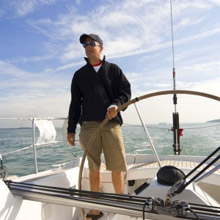
En quoi cela consiste ?
Le skipper est le capitaine d’un voilier. Également appelé chef de bord ou encore patron, dans le domaine de la plaisance à la voile, le rôle du skipper est avant tout d’assurer le transport de passagers à bord d’un bateau à voiles d’un port à l’autre. Un skipper peut travailler pour son compte ou bien proposer ses services à une entreprise. Dans ce dernier cas de figure, il arrive très souvent qu’il soit recruté au contrat et non en tant que salarié même si cela reste possible.
Diplômes requis
Il s’agit d’un métier pour les professionnels de la voile et qui exige de connaître tout de la navigation, des règles maritimes, de la communication en mer et des règles de sécurité. Qui veut devenir skipper est donc tenu de passer par un parcours assez fastidieux. Le diplôme requis pour passer skipper a été récemment renommé en « Capitaine 200 Voile » ou C200V en abrégé. Pour pouvoir se présenter au concours d’entrée, il faut avoir été déclaré apte et en bonne forme physique par un médecin des gens de la mer. Il n’y a toutefois pas de limite d’âge. La formation se divise ensuite en 5 modules alternants cours théoriques et applications pratiques, allant de la mécanique et entretien des machines à la radiocommunication, en passant bien sûr par la navigation et la météorologie.
Domaines ou qualités à travailler
Pour se préparer à ce métier, il faut surtout être en très bonne condition physique et notamment être un très bon nageur. Il faudra donc bien suivre les cours d’EPS. Ensuite, il faut savoir qu’être skipper, c'est bien plus qu’un simple métier, il s’agit d’une passion. Passion de la mer, du voyage, de la nature. C’est un métier éreintant mais qui offre la possibilité aux amoureux des océans de vivre de leur passion. En plus d’une très bonne condition physique, les qualités requises pour faire skipper sont une bonne résistance à la pression, car le métier de marin exige des nerfs solides, et le sens de la responsabilité puisqu’il ne faut pas oublier qu’un skipper est un capitaine.
Rencontre avec...
Vincent bourdin , skipper indépendant.
Comment vous est venue l'envie de faire ce métier ? Mes parents m’ont envoyé faire des stages de voile à Jeunesse et Marine (un peu l’équivalent des Glénans) quand j’avais 15 ans, et depuis le virus de la voile ne m’a jamais quitté. Ne m’épanouissant pas dans mes études d’architecture à Paris, j’ai tout arrêté pour descendre en Méditerranée passer mes diplômes de skipper, avec notamment en tête un projet d’école de voile pour les personnes handicapées qui a vu le jour en 1996 (Cap au large) et qui existe encore à ce jour sur Sète. Quel a été votre parcours pour y arriver ? J’ai commencé par passer le Brevet d’État d’Éducateur Sportif 1er degré option voile, en contrôle continu d’un an, puis j’ai passé par la suite le Brevet de Patron de Plaisance à la Voile (BPPV), ancêtre du Capitaine 200. A l’époque (et je crois savoir que c’est encore le cas aujourd’hui), il y avait des passerelles entre les deux diplômes qui permettaient de bénéficier d’équivalences et de ne pas passer toutes les matières. Qu'est-ce qui vous plaît le plus dans votre profession ? Le contact avec la nature et la mer, le travail au grand air, bien sûr, mais aussi les rencontres avec les clients et les autres navigateurs, la diversité des bateaux et des lieux de navigation. La mer est pour moi un des derniers espaces de liberté quasi-totale, relativement peu règlementé, où l’on retrouve les véritables valeurs, comme, par exemple, de consommer le strict nécessaire et de laisser le superflu à terre. L’eau reprend toute sa valeur, tout comme l’énergie, la nourriture, etc. La notion du temps est différente en mer : on mange quand on a faim, on dort lorsqu’on a sommeil ou que le bateau et les éléments vous en laissent le temps. Le défi, parfois, de réparer des petites avaries avec les moyens du bord (à la "MacGyver") est souvent source de satisfaction. Enfin, être payé pour naviguer est pour moi le comble du bonheur. Quels sont en revanche ses inconvénients ? Sans conteste la difficulté de le concilier avec une vie de famille traditionnelle, les périodes de navigation et donc d’absence du foyer pouvant parfois être longues. J’ai cependant réussi à trouver des compromis, je suis marié et père de deux enfants et on y arrive. Enfin on s’imagine souvent le skipper sur son voilier les doigts de pieds en éventail, or ce n’est que rarement cela. Il faut s’occuper du bateau, de la route, des réglages de voile, et le mauvais temps peut venir interrompre le farniente. Naviguer dans le vent fort, mouillé par les vagues ou les embruns, secoué dans tous les sens en se cognant et en se cramponnant où l’on peut n’est pas toujours une partie de plaisir. Heureusement, c’est assez rare. Mais ça arrive. Y a-t-il encore des débouchés dans ce secteur d'activité ? Il y a du travail pour peu que l’on soit près à travailler loin de chez soi ou à quitter le domicile sur d’assez longues périodes. En avançant dans l’expérience, on développe un réseau d’amis skippers, de clients, etc. et le travail ne manque pas si on se bouge un peu. Les voiliers et yachts auront toujours besoin de capitaine. En revanche, il est bon de se prévoir une deuxième casquette, car il n’est pas évident d’exercer après un certain âge, ce travail demandant une excellente condition physique. En ce qui me concerne, j’exerce également comme journaliste nautique pour divers magazines. Son site internet : http://skippervince.free.fr/
Découvrez d'autres métiers :

Vos commentaires
Mots à retenir, on a su y répondre....

Ça fait le buzz

Testez vos connaissances !

Recettes faciles

Faire de la mer son métier est le rêve de beaucoup de passionnés ! Pourtant, on ne s’improvise pas skipper professionnel. Il faut même pour cela devenir Capitaine. Faisons le point et voyons les étapes pour devenir skipper!
1 – Quels sont les diplômes et brevets nécessaires pour devenir skipper 2 – Où se former au métier de skipper? 3 – Les responsabilités du skipper et du client
1. Quels sont les diplômes et brevets nécessaires pour devenir skipper
Pour pouvoir exercer la fonction de Skipper professionnel, c’est à dire, assurer un commandement de manière rétribuée, il faut y compris en plaisance, être titulaire d’un brevet de Capitaine . C’est du moins le cas à bord d’un bateau français. Selon la réglementation de chaque pays, il existe d’autres titres. Le Yachtmaster par exemple, permet d’assumer cette fonction à bord de bateaux sous pavillon britannique.
La législation qui s’applique ne dépend pas d’une localisation géographique, mais du pavillon du bateau sur lequel le skipper exerce. A bord d’un bateau français, il faut donc être titulaire d’un Brevet de Capitaine qui permet de commander des bateaux de 200, 500, 3000 UMS et au-delà (UMS signifie Universal Measurement System, et remplace l’ancienne jauge brute en tonneaux). Pour les prérogatives de brevet, on admet les correspondances suivantes :
- 200 UMS – 100 tonneaux
- 500 UMS – 200 tonneaux
- 3000 UMS – 1600 tonneaux
La nuance entre diplôme et brevet est importante, surtout dans les métiers de la mer pour lesquels un apprentissage sur les bancs de l’école ne suffit pas. La formation (environ, 500 heures pour un Capitaine 200, hors spécialisation), est sanctionnée par un examen. Pour se prévaloir du Brevet, le nouveau titulaire du diplôme devra ensuite valider ses compétences au cours de 12 mois de navigation. En plus de cela, le skipper en devenir devra obtenir les qualifications complémentaires en certifiant des modules, selon qu’il navigue à la voile, au large, ou qu’il transporte des passagers . Le brevet de Capitaine doit être re-validé tous les 5 ans via un recyclage et en justifiant de navigations professionnelles effectives.
2. Où se former au métier de skipper?
Les lycées professionnels maritimes et centres de formation dédiés proposent d’acquérir le tronc commun de la qualification . On pourra ensuite se tourner vers des organismes comme les Centre voile Macif, qui dispensent des formations au « Module 5 – Capitaine 200 voile ». Ce module est accessibles si l’on remplit les conditions suivantes:
- Etre titulaires d’un brevet de Capitaine
- Avoir 20 ans révolu
- Etre déclaré apte physiquement à la navigation (par un médecin du service de santé des gens de la mer)
A l’issue de la formation, c’est la Direction inter-régionale de la Mer qui délivre diplômes et brevets.
Les prérogatives du « Capitaine 200 » permettent de réaliser du transport de marchandise ou de convoyer un bateau. Elles permettent également le transport de personnes, que ce soit en charter ou comme skipper professionnel embarqué sur un bateau tiers. Par contre, pour pratiquer l’école de croisière, le coaching plaisance ou toute activité de formation, il faut passer en plus, le brevet d’état BPJEPS (Brevet professionnel de la jeunesse, de l’éducation populaire et du sport).
Le skipper qui voudrait assumer légalement ce double rôle de formateur et de Capitaine, devra donc être titulaire de ces 2 brevets.
3. Les responsabilités du skipper et du client
En temps que client, on fait appel à un skipper professionnel pour qu’il prenne la responsabilité du bateau (et de la sécurité de son éventuel équipage). La charge de « Chef de bord » n’est jamais anodine, même pour un skipper plaisancier. Elle est bien plus cruciale encore pour qui est considéré comme un professionnel.
Imaginons un instant les suites d’une fortune de mer et la réaction d’un tribunal ou d’un assureur s’il apparaissait que le « skipper expérimenté » n’était pas titulaire de tous les brevets requis… ce qui bien sûr implique qu’il n’était pas non plus couvert par une assurance responsabilité civile professionnelle valide ! Au moment de recruter un skipper, assurez-vous qu’il dispose bien des brevets voulus et qu’il est couvert par une assurance professionnelle pour son activité.
La mer demeure un bel espace de liberté, mais cela n’en fait pas une zone où tout serait toléré. Un plaisancier, même convenable ne peut pas s’instituer professionnel. Avec l’expérience, un pratiquant de la plaisance devient progressivement skipper à son propre bord ou sur les bateaux qu’il loue ou emprunte. Il peut devenir un excellent marin et éventuellement faire profiter amis et connaissances de son savoir et du fruit de son expérience. Cependant, il reste (sans dédain aucun), un plaisancier amateur (littéralement une personne qui aime prendre son plaisir en allant sur l’eau).
Laissons aux professionnels dûment formés et titulaires des certifications nécessaires, le soin d’exercer ce métier. Même si notre pratique des bateaux et de la navigation nous procure le sentiment de savoir,l’humilité est le module n° 1 de la formation de marin !
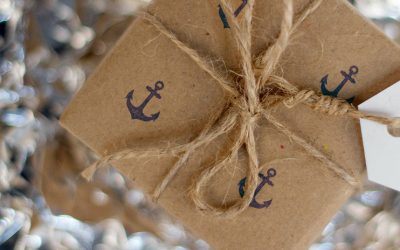
Submit a Comment Annuler la réponse
Votre adresse e-mail ne sera pas publiée. Les champs obligatoires sont indiqués avec *
Submit Comment
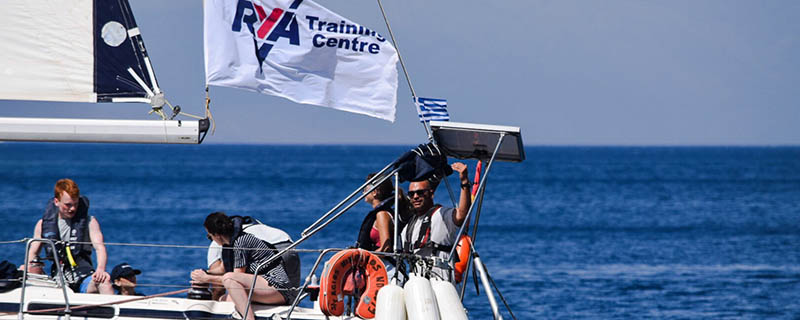
How To Become A Qualified Yacht Skipper
Reading time 4 min 45 sec
Author Lee Savage
Whatever your reasons for getting into sailing, it is not as difficult as you might imagine and there are a lot of different ways to get started. With so many destinations to choose and so many sailing experiences, it can be overwhelming to decide where to start.
If exploring fantastic bays, discovering remote islands, swimming and relaxing in the sun with a good book sounds like the kind of yacht cruising you are looking for then Cabin Charter will be the way to go.
If you would like to dip in and see but you are not sure if it’s for you our beach club has a dedicated Yacht where we offer several opportunities including two days Beginner Yachting (16h) while you stay in our Beach Club Hotel .
But you are here to find out how to become a Yacht Skipper, learn a new skill and take the first step towards becoming qualified, opening a whole new world of possibility for holidays and adventure travel. Even if you only ever do one course, you will have experienced the trip of a lifetime.
The RYA is a world-recognised organisation authorised by the UK maritime coastguard agency to issue international certificates of competence. Seafarer instructors are all experienced RYA instructors and can deliver a challenging syllabus to take you from no experience to a qualified licensed skipper through a series of RYA courses outlined below.
Our Training Centers – help you become a skipper

RYA Training In The Mediterranean
For our training yachts in Greece and Croatia, you have the opportunity to learn alongside a fantastic holiday experience. Naturally, it is a more intense experience than a Yacht Charter holiday. You will spend most of your days absorbing the syllabus, but there will also be opportunities to swim and explore the beautiful islands.
Learning alongside our flotilla, you will also have the chance to participate in group meals, our punch, and beach parties. Popular with experienced and newly qualified skippers alike or those seeking to improve their abilities with the support of our skilled lead crews. Filled with like-minded sailors, you will meet skippers who have already taken steps into the sailing world and discovered how accessible it is. It’s a tremendously positive and supportive environment to learn alongside.
RYA Training In The UK
Our UK school offers numerous bespoke courses for those wishing to brush up on any particular skills before flying to their next sailing holiday be it boat handling or just refreshers. Of course, we offer all the practical RYA courses including Competent Crew, Day Skipper & Coastal Skipper (for Day Skippers wishing to take there sailing further)
Based in Southampton, it offers fantastic sheltered waters sailing in the lea of the Isle Of Wight. It’s a great location to challenge your tidal knowledge and experience the lively sailing environment made famous for events like the Fastnet Race, the Round the Island Race and Cowes Week.
How to Become A Skipper
The Competent Crew course is perfect for somebody who has never been on a yacht before. It is the broadest course in the RYA syllabus covering virtually everything to do with sailing and living onboard a boat. You will have the opportunity to test your skills and will come away with a great sense of achievement and a good understanding of where to go next!
As an instructor for many years, I have discovered that even more experienced sailors can benefit from this course, there is always another level of detail to learn. If you haven’t sailed for a while or had any formal training, this course will not only be an excellent refresher, but you will be surprised how many new things you can learn. For more experienced sailors, this is a unique opportunity to polish the essential fundamentals of sailing.
Training in Croatia Training in Greece Training in the UK
Theoretically a skipper
With some sailing experience under your belt, you are ready to study the theory. Reading about navigation, sailing, and charts will seem much less daunting. You are now prepared to take the Day Skipper theory course. The Day Skipper Theory syllabus contains all essential theoretical knowledge required to become a skipper. It can be completed online at your own pace, We offer Navathome with all the needed resources sent to your home, and you can even use your repeat customer discount.
If you don’t feel ready
Not everybody is prepared for the Day Skipper course right away, we all learn at different rates and bridging the gap between the competent crew and Day Skipper courses is best achieved with Bespoke training, this can help you refine those skills that you think you lack. Commonly this is boat handling, we all know there is nothing more exhilarating than bringing a beautiful yacht alongside a concrete harbour wall! We offer bespoke training at all of our bases in Greece, Croatia, and the UK.
The courses in the Mediterranean are all one week. Our UK school offers much more flexibility for weekends or any other length or start days. Talk to one of our consultants to find out more.
General skills training works very well alongside the day skipper course. You will get to see others go through the course while you polish the fundamentals. Having feedback from an instructor while learning alongside the standard RYA courses can give you the confidence to grow without the pressure of a restricted syllabus. Talk to one of our consultants to find out where and how we can help you get to the next level.
The Sailing Licence
With your Day skipper theory ticket in hand and some recent sailing experience, You will be ready for the Day Skipper practical course. Taking everything you have learned in the first two courses, this turns you into a responsible skipper. You will learn to handle the boat, bringing it into port, directing your crew to ensure everyone is safe and comfortable.
Call 0208 324 3118 Email [email protected]
Now you are qualified as a skipper
With your internationally recognised license in hand, you now have the opportunity to take your friends and family sailing on Yachts around the world. I am not surprised if this might feel incredibly daunting as this license can be achieved in as little as three weeks.
Flotilla can be a great option to help build your confidence. As well as being fantastically social flotilla offers you the opportunity to grow as a skipper with the security of having our lead crew on standby to assist or advise on any aspect of sailing. You can find more about our flotillas here .
A whole world of sailing
As soon as you feel ready, you will be free to charter yachts worldwide. As an internationally recognised skipper, you can benefit from bareboat prices and the freedom to travel at your own pace. Seafarer has a vast range of worldwide destinations. Click here to find out more.
If you are still not sure
Perhaps you are not sure where you fit into all of this. Why not talk to one of our team? We are a small yet experienced company in the world of sailing, and we would be happy to advise you on how best you can get started.
Related posts

Kick start your sailing season at the RYA Suzuki Dinghy Show
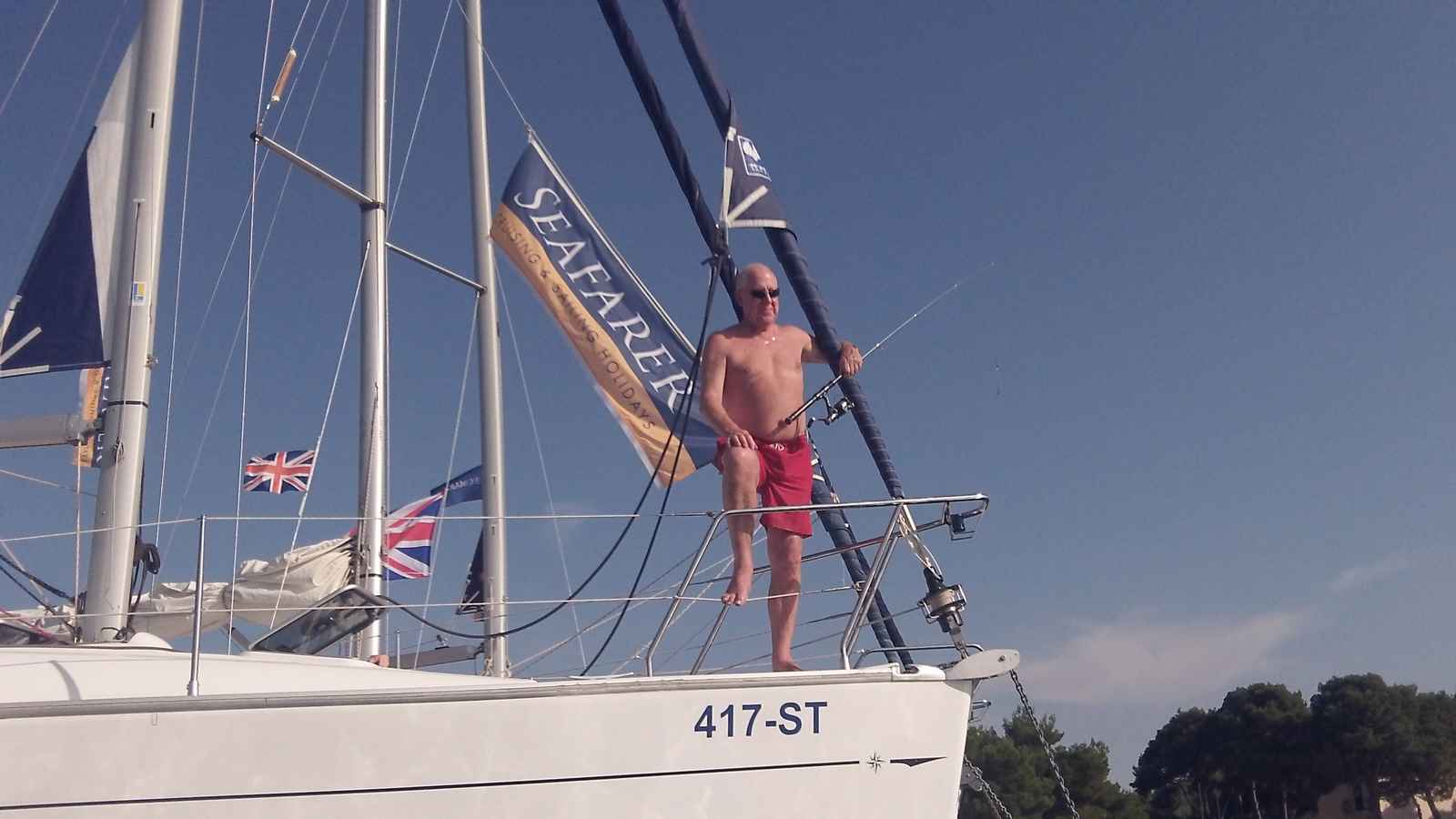
Seafarer’s 6 Nations of Sailing

Sailing the Dalmatian Coast
- Exploring the Role of a Skipper in Boating and Sailing
The term " skipper " holds a prominent place in the world of boating and sailing, representing the individual tasked with the operation, navigation, and overall management of a vessel. Whether it's a small boat, a luxurious yacht, or a sailing dinghy, the skipper plays a crucial role in ensuring the safety and smooth functioning of the maritime journey.
Boat Skipper and Yacht Skipper:
The title "boat skipper" is a broad term encompassing individuals in charge of various types of boats , while a "yacht skipper" specifically denotes someone overseeing the operations of a yacht. Both positions require a comprehensive understanding of navigation, safety protocols, and the ability to make informed decisions while at sea.
Charter Skipper:
In the realm of chartering, where individuals or groups rent boats for recreational purposes, a charter skipper may be hired. This professional takes the helm for those who may lack the necessary expertise, ensuring a safe and enjoyable experience for all on board.
Sailing Skipper and Skipper 12 Sailing Dinghy:
A "sailing skipper" is someone well-versed in the intricacies of sailing, adept at harnessing the power of the wind to navigate the waters effectively. Meanwhile, a "Skipper 12" refers to a specific type of sailing dinghy , a smaller boat designed for sailing enthusiasts.
Read our top notch articles on topics such as sailing, sailing tips and destinations in our Magazine.
Sailing a Yacht for the First Time:
For those embarking on their maiden voyage aboard a yacht, having an experienced skipper on board is often recommended. Navigating a yacht for the first time can be a complex endeavor, and the guidance of a seasoned skipper ensures a smoother introduction to this maritime adventure.
Hiring a Skipper:
Individuals who own boats but lack the necessary skills or time to operate them may opt to hire a skipper. This allows them to enjoy the pleasures of boating without the responsibilities and challenges associated with captaining the vessel
Read more useful sailing tips:
How to become a yacht/boat skipper:.
Aspiring skippers often undergo training and certification processes to acquire the skills and knowledge needed for the role. This may involve learning about navigation, safety procedures, and gaining hands-on experience in boat handling.
Skippers Choice Marine Supply:
In the marine industry, businesses like "Skippers Choice Marine Supply" cater to the needs of skippers and boat enthusiasts, providing a range of products and services to enhance the boating experience.
In conclusion, the term "skipper" encompasses a diverse range of roles in the maritime world, from steering a small boat to captaining a luxurious yacht. Whether hired for a charter, sought for guidance in sailing, or responsible for the day-to-day operation of a vessel, the skipper is a central figure in the world of boating and sailing, ensuring safe and enjoyable journeys on the water.
So what are you waiting for? Take a look at our range of charter boats and head to some of our favourite sailing destinations .
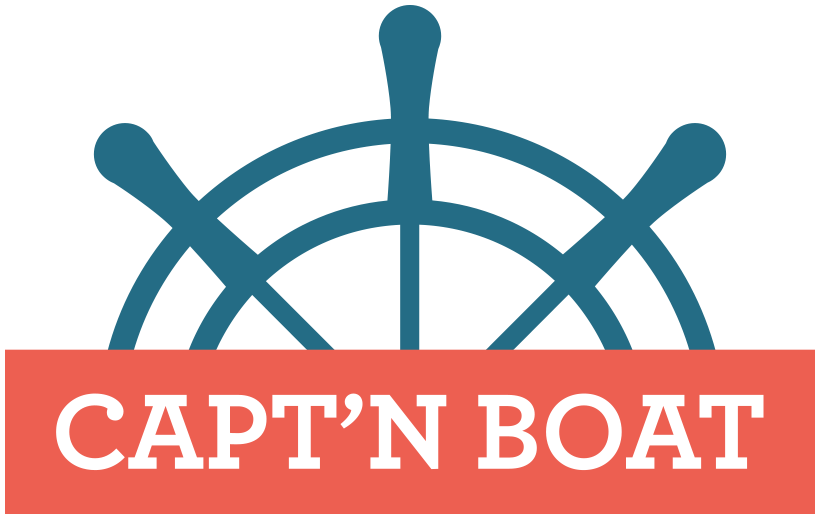
Quelle réglementation pour le métier de skipper en France ?

La réglementation du métier de skipper en France est complexe et compte de nombreux titres et qualifications. Diplômes et brevets, Capitaine 200 et BEJEPS, diplômes étrangers et visa de reconnaissance, on s’y perd facilement.
Dans le vocabulaire classique, un skipper désigne le commandant d’un voilier et le capitaine d’un bateau à moteur. Un skipper professionnel est donc une personne qualifiée au transport de passagers ou de marchandise sur un voilier, un catamaran ou sur un bateau à moteur.
Le skipper est aussi le responsable à bord, il fait figure d’autorité et se doit de maintenir l’ordre, la sécurité du navire, des personnes embarquées, de la cargaison et la bonne exécution de l’expédition.
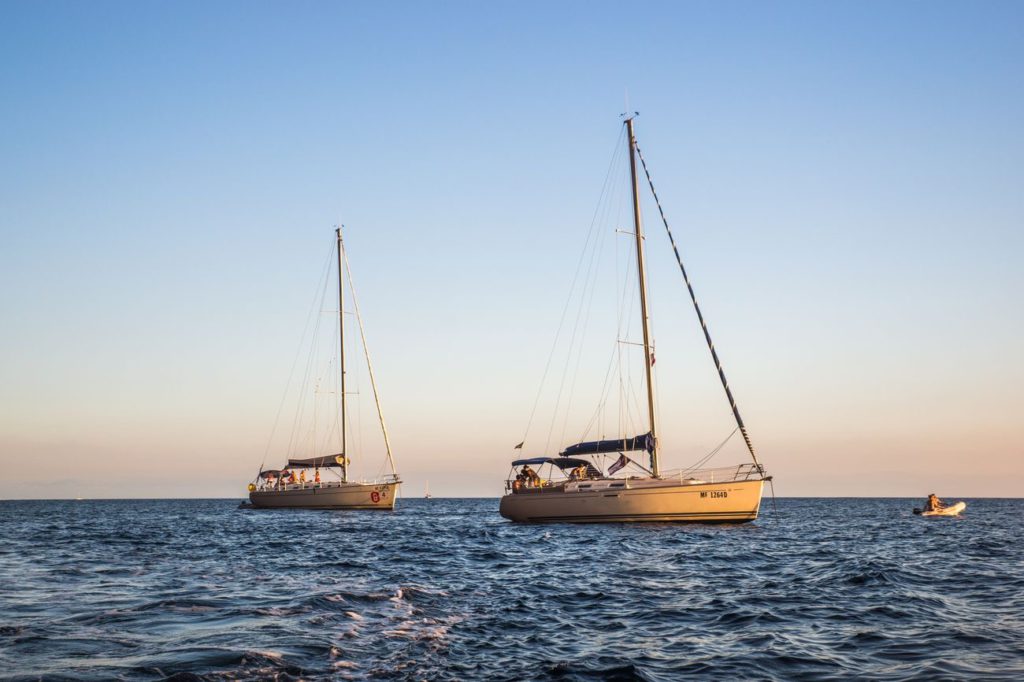
1. Être skipper en France
Le statut de skipper en France implique d’exercer une activité professionnelle directement liée à l’exploitation d’un navire ( Décret n° 2015-454 du 21 avril 2015 et art. L. 5511-1, 3° et 4° du Code des Transports ).
Un skipper, pour exercer en France, doit remplir plusieurs conditions obligatoires :
- Avoir 16 ou 18 ans pour le travail de nuit; et 20 ans pour être capitaine.
- du certificat d’aptitude médicale à la navigation,
- d’un certificat de formation de base à la sécurité (CFBS),
- d’un certificat attestant la validation d’un enseignement médical (EM I, II ou III),
- d’un certificat d’opérateur (CGO ou CRO)
A. Responsabilité du skipper
La responsabilité du skipper, “seul maître à bord”, est importante juridiquement et civilement. Le skipper doit en effet, veiller à la bonne marche du navire, s’assurer d’un équipement approprié et en bon état de fonctionnement, décider l’agenda et la route en fonction de la météo et veiller à la sécurité de l’équipage. Si la responsabilité du skipper n’est pas absolue, il est important d’avoir une assurance complète, couvrant à la fois le bateau sur lequel est effectuée la prestation et un tiers.
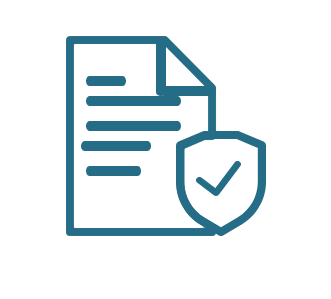
Capt’n Boat fournit pour chaque prestation, un contrat d’assurance 2 en 1 : une assurance multirisques & dommages couvrant jusqu’à 1 million d’euros le bateau, doublée d’une RC pro couvrant jusqu’à 8 millions d’euros un tiers ayant subi un dommage dû à une faute du skipper.
Ce contrat d’assurance répond parfaitement aux besoins des skippers. Il couvre également pour les propriétaires professionnels une perte d’exploitation de leur navire, et pour les propriétaires particuliers une perte de jouissance.
La profession de skipper (marin) est soumise à des conditions d’accès et d’exercice : aptitudes médicales ( Article L5521 du Code des Transports ) et formations professionnelles.
B. Obligation de formation et qualification
Dès lors qu’un skipper est rémunéré pour une navigation dite commerciale ou de plaisance professionnelle, il est soumis aux obligations de formation et de qualification imposées par le décret n° 2015-723 du 24 juin 2015 relatif à la délivrance des titres de formation professionnelle maritime et aux conditions d’exercice de fonctions à bord des navires armés au commerce, à la plaisance, à la pêche et aux cultures marines (le “Décret de 2015”), tel que modifié par le décret n° 2017-1835 du 28 décembre 2017 (le “Décret de 2017”).
En France, les obligations de formation et diplômes spécifiques dépendent de plusieurs critères :
- Le type de bateau : voilier ou moteur
- La jauge du navire
- L’éloignement des côtes
- La nature de la mission du skipper à bord
En fonction de ces critères, des diplômes / brevets différents seront exigés.
2. Les titres et qualifications du skipper en France
A. les brevets de marine marchande.
Le Décret de 2015 réglemente la profession de skipper et prévoit que “Nul ne peut exercer à bord d’un navire battant pavillon français armé au commerce, à la plaisance, à la pêche et aux cultures marines des fonctions au niveau de direction, opérationnelle ou d’appui, s’il ne possède les titres et attestations requises”. Ce décret a été modifié par le Décret de 2017 qui étend davantage les obligations de formation et d’obtention de permis afin de piloter des navires de taille plus réduite.
En vue de développer son propre système national de diplômes, la France a instauré les règles relatives aux diplômes de :
- Capitaine 200 : permet de commander des navires de jauges < 200 UMS, soit jusqu’à ~24 mètres, et dans une limite 20 milles des côtes.
- Capitaine 200 voile : permet de commander des navires de jauges < 200 UMS, soit jusqu’à ~24 mètres, sans limitation de distance des côtes.
- Capitaine 200 yacht (moteur) : permet de commander des navires à moteur de jauge < 200 UMS, soit jusqu’à ~ 24 mètres, et dans une limite de 60 milles des côtes.
- Capitaine 500 : permet de commander des navires de jauges < 500 UMS, soit jusqu’à ~45 mètres, dans une limite de 200 milles des côtes sur un navire à usage commercial (NUC) et sans limitation de distance sur un navire à usage personnel (NUP).
- Capitaine 500 yacht (moteur) : permet de commander des navires de jauges < 500 UMS, soit jusqu’à ~45 mètres, sans limitation de distance des côtes.
- Capitaine 3000 : permet de commander des navires de jauges < 3 000 UMS, soit jusqu’à ~100 mètres, sans limitation de distance des côtes.
- Capitaine, dit “illimité” : sans limites de taille
L’ensemble de ces diplômes ont chacun des contraintes d’éloignement des côtes qui peuvent être réduites en fonction des formations obligatoires associées (CGO, CRO, EM I, II ou III).
Ces diplômes issus de la Marine Marchande permettent, entre autres, aux capitaines d’assurer la fonction de patron à bord de tous navires de plaisance à voiles ou à moteur, dans le cadre d’une activité de transport de passagers, de conduite pour le compte d’un tiers propriétaire, loueur, locataire ou emprunteur de ce navire y compris le convoyage.
– Quelle différence entre un diplôme et un brevet ?
Il existe une distinction entre les diplômes et les brevets. La délivrance d’un diplôme , à l’issue d’une formation, permet au candidat de naviguer comme élève officier durant 2 ans . Ce n’est qu’ au terme de cette période que ce diplôme sera converti en brevet.
Autrement dit, les brevets permettant d’exercer les fonctions, conformément aux prérogatives fixées par le décret, nécessitent :
- L’obtention de diplôme (attestation témoignant de l’acquisition des modules lors du cursus de formation)
- Ainsi qu’un temps de service effectif en mer minimum : 12 mois sur 2 ans (accompli à titre professionnel à bord de navires battant pavillon français sur des navires armés ou pavillon étranger. Si le temps en mer se fait sur un pavillon étranger, celui-ci doit présenter le même caractère actif et professionnel que sur un navire sous pavillon français).
Les brevets d’aptitudes sont valides pendant 5 ans après dates d’effet, et doivent être renouvelés.
Les brevets de Capitaine sont strictement français. Ces brevets sont délivrés par la Direction Interrégionale de la Mer (DIRM).
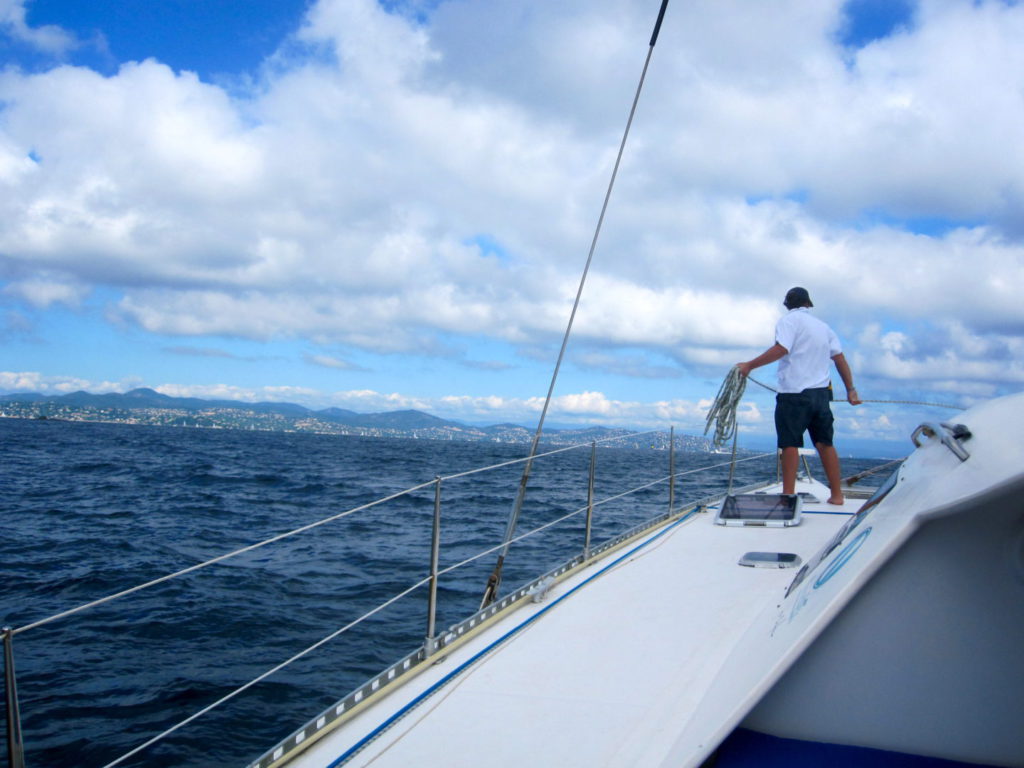
B. Les Brevets d’Aptitude à la Conduite de Petits Navires : BRACPN, BACPN, BACPNV
Le Brevet Restreint d’Aptitude à la Conduite de Petits Navires (BRACPN), le Brevet d’Aptitude à la Conduite de Petits Navires (BACPN) et le Brevet d’Aptitude à la Conduite de Petits Navires à Voiles (BACPNV) sont des titres de formation professionnelle autorisant et légitimant des activités professionnelles locales de petite taille sans justifier d’un Capitaine 200.
Ils ont été mis en place suite à l’arrêté du 28 décembre 2017 entré en vigueur en 2018 , et mis à jour le 30 décembre 2020 suite au décret n° 2020-1809
- Le Brevet “Restreint” d’Aptitude à la Conduite de Petits Navires (BRACPN) concerne les activités commerciales qui ne transportent pas de passagers et dont la navigation globale ne dépasse pas 2 milles nautiques du point de départ.
- Le Brevet d’Aptitude à la Conduite de Petits Navires (BACPN) concerne des activités autorisant le transport jusqu’à maximum 12 passagers, dans des embarcations à moteur et dans une limite de 6 milles du point de départ.
- Le Brevet d’Aptitude à la Conduite des Petits Navires à Voiles (BACPNV) concerne les voiliers de moins de 12 mètres, et autorise le transport jusqu’à maximum 12 personnes dans une limite de 6 milles d’un abri.
– Les dérogations appliquées à ces « petits brevets »
L’ordonnance du 29 juillet 2020 relative aux conditions d’exercices d’activités maritimes accessoires et à l’adaptation des conditions d’exercice de certaines activités maritimes aux voyages à proximité du littoral, prévoit des dérogations pour ces « petits brevets ».
- Par dérogation à l’article L 5521-1 du code des transports, l’aptitude médicale requise pour ces « petits brevets » est attestée par le certificat d’aptitude physique au permis de conduire les bateaux à moteur délivré par un médecin agréé.
- Par dérogation aux principes d’affiliation au régime de sécurité sociale des marins, ces « petits brevets » n’ont plus d’obligation d’affiliation au régime de sécurité sociale des marins et gens de mer (ENIM) .
Ils ont une durée de validité de 5 ans après la date de délivrance. Pour renouveler son brevet, le titulaire demande sa revalidation au directeur interrégional de la mer de sa région administrative. Il doit justifier qu’il satisfait aux normes d’aptitude médicale prévues, et qu’il maintient ses compétences professionnelles. À l’issue de la procédure de revalidation, il se voit délivrer un nouveau brevet d’aptitude. En savoir plus sur ces “petits brevets”.
C. Titres pour enseigner la voile
Afin d’exercer des fonctions d’enseignement à bord d’un voilier, le moniteur responsable de la formation doit détenir une carte professionnelle. Cela implique d’être détenteur d’un des brevets suivants :
- Brevet d’État ( BE ),
- Brevet professionnel de la jeunesse, de l’Éducation Populaire et du Sport ( BPJEPS ), activités nautiques. Remarque : Le moniteur de voile, titulaire du BPJEPS, acquiert le statut de chef de bord lors de la prestation d’enseignement. Pour ce type d’activité, il n’a pas besoin de cumuler BPJEPS et Capitaine 200. Si cependant le skipper voulait effectuer des missions de charter et/ou de convoyage, un brevet de Marine Marchande est obligatoire.
- Certificat de Qualification Professionnelle Initiateur voile ( CQP IV ). Ce dernier ne permet que d’encadrer l’activité sous la supervision d’un titulaire d’un diplôme d’État dans la limite de 500 heures par an (s’il dépend du Groupe 2 de la Convention Collective Nationale du Sport).
- Le Brevet d’État Éducateur Sportif ( BEES ) 1er degré donne à son titulaire la qualification minimale exigée pour animer ou enseigner la voile dans tous types d’établissements. Le BEES 2e degré vient consolider le BEES 1er degré, il permet de répondre à des besoins encore plus diversifiés.
- coordonner la mise en œuvre d’un projet sportif de développement économique, social et environnemental ;
- coordonner des équipes de bénévoles et de professionnels ;
- piloter un projet de perfectionnement sportif pour des compétiteurs de niveau national en voile à moins de 6 milles nautiques d’un abri ;
- développer et encadrer des activités à finalités sportives et éducatives ;
- conduire des actions de formation et de tutorat auprès des professionnels et des bénévoles de l’encadrement.
Toutefois, pour une pratique au-delà de 200 milles nautiques d’un abri, le DEJEPS “perfectionnement sportif” mention voile est nécessaire. Les titulaires de ce dernier doivent effectuer un “stage de recyclage” tous les 5 ans. Cela dans le but d’actualiser les compétences professionnelles du diplômé. Arrêté du 30 août 2017 sur le DEJEPS perfectionnement sportif mention voile.
– Remarque :
Pour les titulaires des titres délivrés par le Ministre chargé des sports, il est possible d’obtenir un brevet de Capitaine 200 voile, via une Validation des Acquis d’Expérience (VAE).
En effet, l ’arrêté du 4 mars 2014 modifiant l’arrêté du 5 juin 2013 , ouvre une passerelle pour les détenteurs d’un brevet jeunesse et sport d’obtenir le brevet de Capitaine 200 voile (brevet Marine Marchande).
Pour prétendre à cette équivalence, le marin doit posséder :
- Un Brevet d’État d’éducateur sportif du premier degré option « voile »,
- Un Certificat Restreint d’Opérateur (CRO) ou un Certificat Général d’Opérateur (CGO)
- Un certificat attestant la validation de l’enseignement médical de niveau II (EM II) ou de l’enseignement médical de niveau III (EM III).
Le skipper doit également justifier d’une certaine durée de navigation en mer ( voir annexe 1 du présent arrêté ).

3. Être skipper en France avec un diplôme étranger
La France est signataire de la Convention STCW, les règles françaises sont en corrélation avec les exigences STCW. Les diplômes listés ci-dessous ont été créés en réponse aux exigences de la Convention STCW :
- Capitaine 200 Voile = Règle II/3 STCW
- Capitaine 500 = Règle II/3 STCW
- Capitaine 3000 = Règle II/2 STCW
- Capitaine = Règle II/2 STCW
La France reconnaît donc les diplômes des autres territoires étrangers, conformes à la convention STCW, dont voici la liste . Cette reconnaissance de diplômes se concrétise en un visa de reconnaissance.
Une demande de visa de reconnaissance doit être formulée à la DDTM de la façade maritime sur lequel skipper aura évolué. Pour les diplômes européens et STCW, la France octroie un visa de reconnaissance valide pendant 5 ans. Un skipper avec un visa de reconnaissance pourra exercer ses fonctions selon le titre délivré par l’autorité de l’État dans lequel ce skipper souhaite travailler.
Cependant, pour les skippers diplômés d’autres pays, un visa de reconnaissance pourra être délivré sous réserve d’avoir au préalable signé un contrat pour une prestation en France / sous pavillon français. Ce visa de reconnaissance sera temporaire, le temps de la durée du contrat.
> Formulaire Cerfa de demande d’obtention d’un visa de reconnaissance.
A. Cas du Yachtmaster
La France ne reconnaît pas à ce jour les diplômes de Yachtmaster STCW et donc ne délivrera pas de visa de reconnaissance pour ce certificat à moins de suivre une formation complémentaire pour obtenir le Master 200 Gt et ainsi utiliser la passerelle entre Yachtmaster et Capitaine 200.
Cependant, les titulaires de visas de reconnaissance donnés avant la fin de cette période de transition, pourront continuer a exercer sur des navires français jusqu’à la péremption de leur visa (5 ans).
Source : Communication de la Commission Européenne sur le retrait du Royaume-Uni dans l’UE et les règles applicables au transport maritime – 3. Qualifications des gens de mer.
Une autre solution envisagée par certains skippers diplômés du Yachtmaster serait de travailler en France sous pavillon étranger.
Être skipper en France relève donc d’une réglementation stricte et exigeante.
L’apparition et le développement de la plaisance professionnelle sont venus bousculer les réglementations appliquées jusqu’alors uniquement à la Marine Marchande.
Dans un contexte où la réglementation du métier de skipper n’est pas homogène, bien que certaines conventions tendent à cela (Convention STCW sur les normes de formation des gens de mer, de délivrance des brevets et de veille); on peut s’attendre à voir encore de nombreuses mutations dans la réglementation du métier de skipper.
Vous souhaitez en apprendre davantage sur la réglementation du métier de skipper ? Téléchargez gratuitement notre Ebook sur la réglementation du métier de skipper en France et dans les principales zones de navigation !

Articles similaires
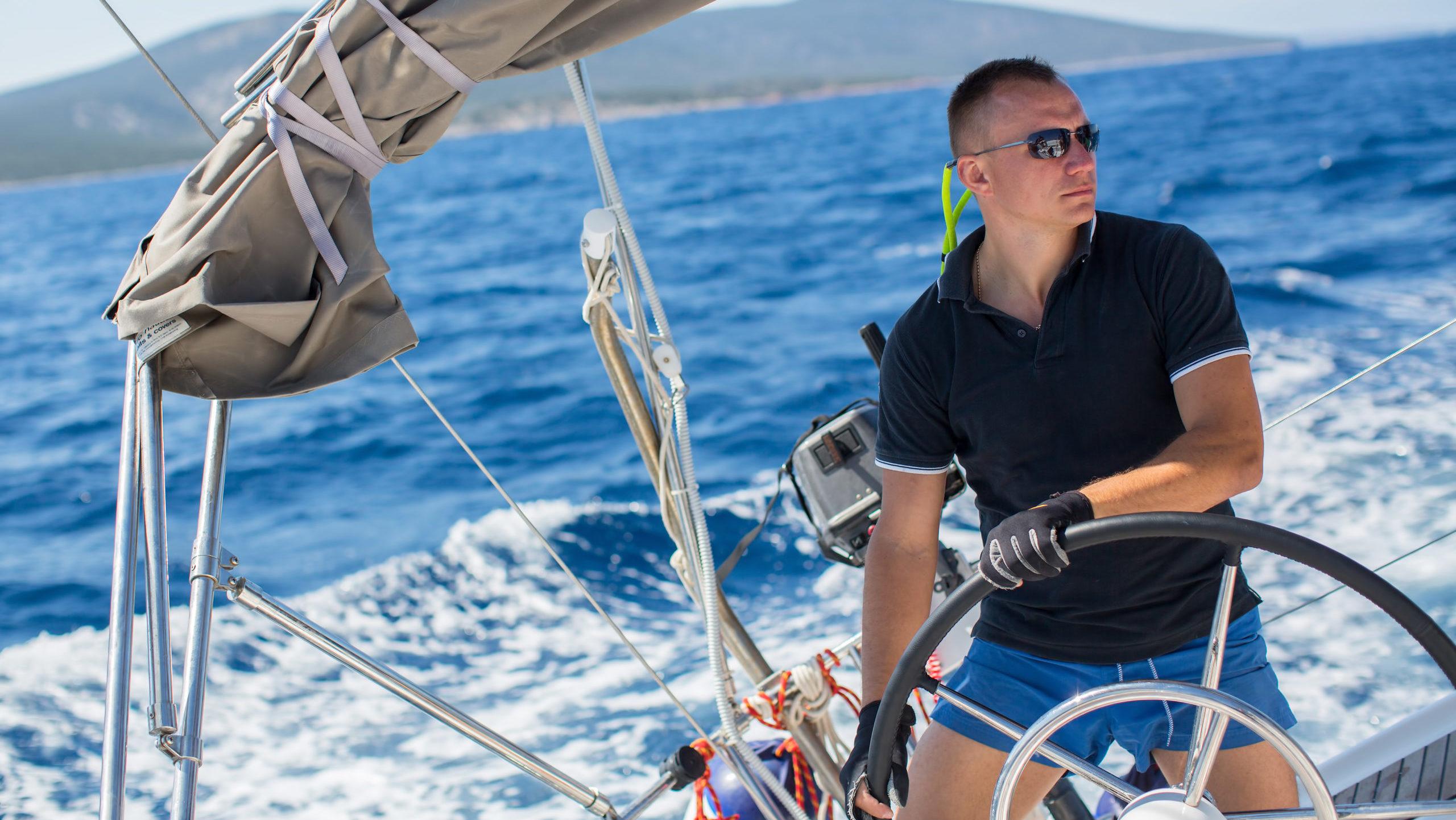
Travail illégal : quelles sanctions pour les skippers ?
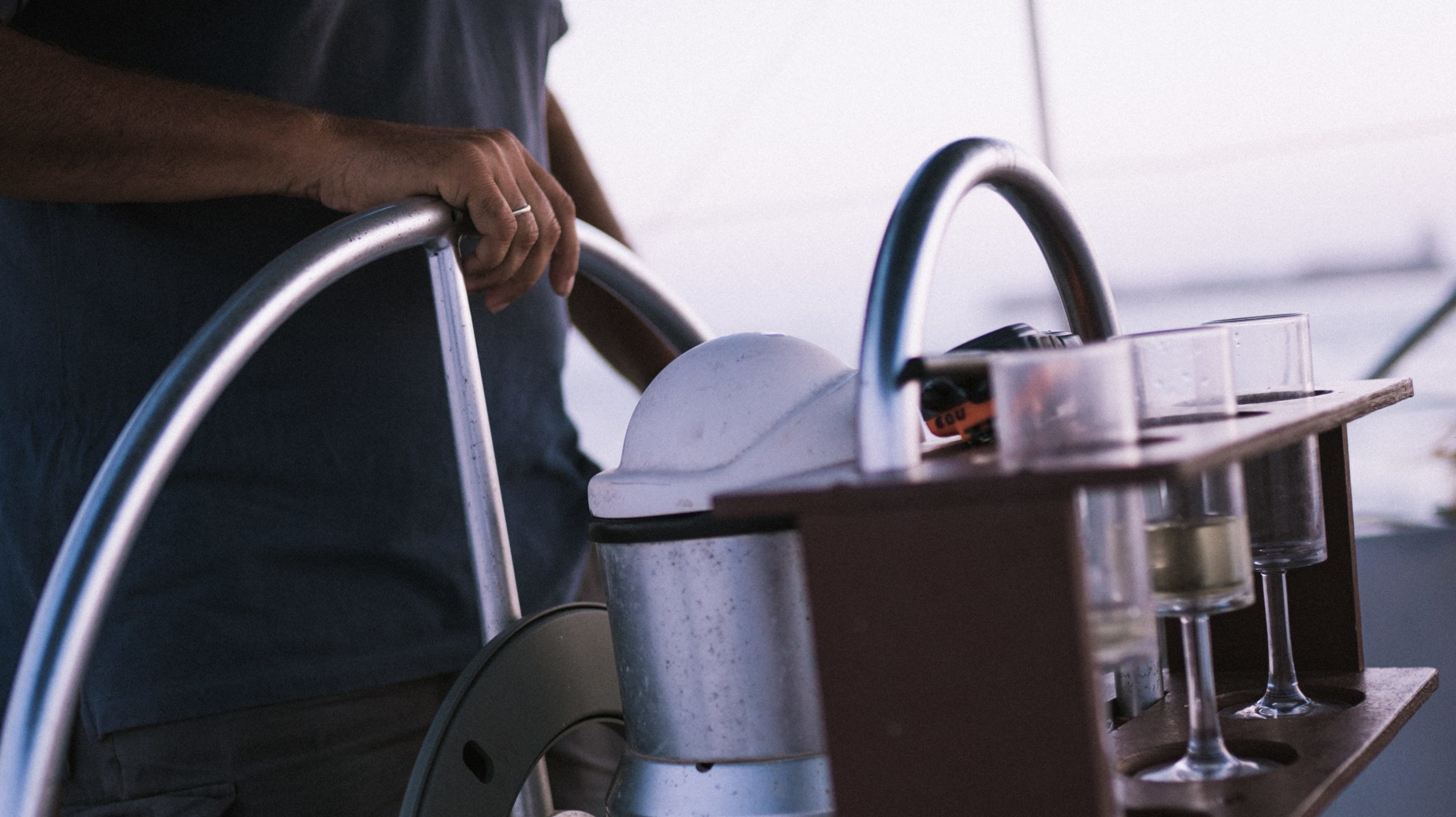
Quel brevet pour être skipper ? Capitaine 200, Yachtmaster ou Master Commercial Yachting 200 GT
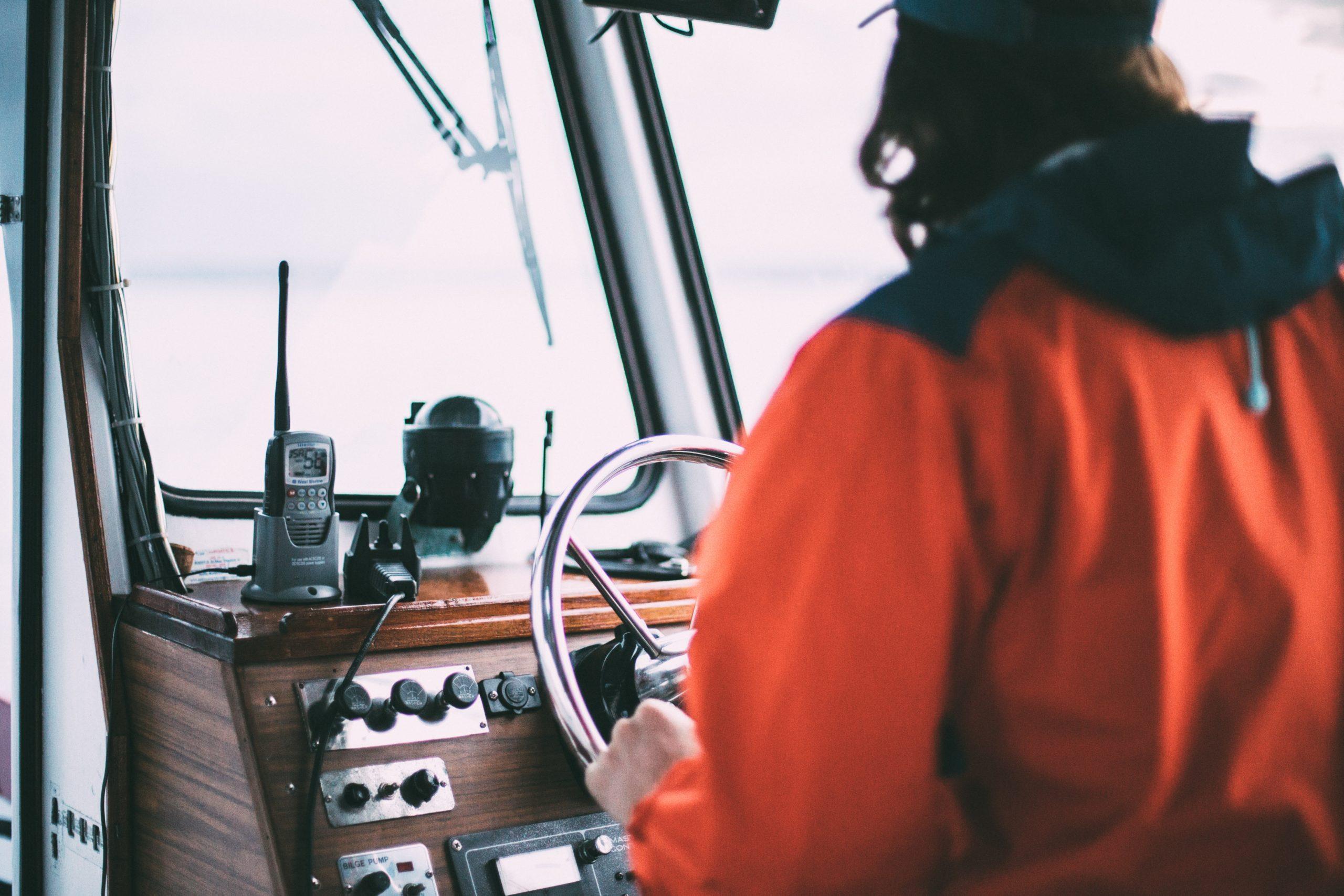
Comment devenir matelot ? Formations, missions et rémunération
- Yachting World
- Digital Edition

How to be a good skipper: ooze calm and confidence but don’t shout!
- March 29, 2016
No two skippers are the same and everyone has different leadership styles, but Chris Tibbs believes certain traits will make you into a skipper that crew will want to sail with

Photo: Mahina Expeditions
We become skippers by a number of different routes; many dinghy sailors will eventually become yacht owners after years of crewing on different yachts. Sea schools are well attended and boats are often keen to take on crew from schools, allowing students to gain experience and miles to help with qualification.
There are also many people who come to sailing later in life; after buying a boat, these people tend to learn from the experience of sailing their own yacht.
I think it is also fair to say that, along with the many ways of getting into sailing and becoming a skipper, good skippers will have different leadership styles – no two are the same. Over the years, having sailed with many different skippers, I have noticed a number of common traits in a good skipper.
By melding together the points I like in a skipper this has hopefully made me a better skipper, both for when I was working commercially running yachts, and now aboard my own.

Photos: Paul Wyeth
I find that a skipper who is calm and confident goes a long way to maintaining a nice feel to a boat. Easily said, but it is a fine balance between confidence and arrogance; and being too laidback can give an impression of laziness, extending to preparations and maintenance. Staying calm and in control during a crisis rubs off on the whole crew and the boat becomes much quieter and under control.
Don’t shout
There is plenty of time for a please and thank you, along with an explanation of what needs doing and how it should be done. It also gives time to work on a solution to any problems and avoids panicked decisions. This is communication in a way that is effective and also pleasant.
People dislike being shouted at (I certainly do); it inhibits crew doing their job as they are afraid of getting it wrong, so they wait until told to do something. This can be very frustrating for a skipper, particularly when racing and the pressure is on, which in turn leads to more shouting.
Article continues below…

ARC weather man Chris Tibbs prepares his boat for ocean cruising
When we bought our Wauquiez Centurion 40s, Taistealai, for ocean cruising, starting with the ARC this year, we had a…
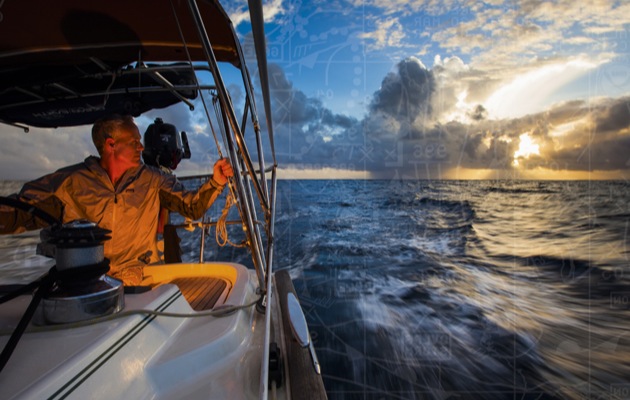
Offshore weather planning: the options for receiving weather data at sea
When I skippered a yacht in the first Atlantic Rally for Cruisers (ARC) 30 years ago the weather planning information…
I equate the amount of noise on board to be in inverse proportion to the sum of knowledge. I do find that being on a boat with a skipper who stands behind the wheel shouting at the crew is not much fun and, if asked back, will generally decline the invitation.
There is something great about helming your own boat in a race, but if you are also trying to run all aspects of the boat from behind the helm you can get stressed. Then your helming declines as your concentration jumps from one task to another.
It is much better to have a crew boss or mate who controls the running of the boat, managing manoeuvring instructions and allowing the skipper to concentrate on helming. The alternative is for the skipper to manage the running of the boat and have a different helmsman. Large racing boats will often have separate helmsman, navigator and tactician, with the skipper in overall control.

This is another important lesson: delegation and training. There are many decisions taken on board that really do not need to involve the skipper once a general plan has been made.
For example, does the skipper really need to micromanage all the food that is bought for a transatlantic passage ? By delegating a large proportion of the running of the yacht to others it does free up the skipper to focus attention on the more important issues.
5 top tips for a good skipper
- Communicate clearly.
- Stay calm and confident.
- Promote fairness and listen to your crew (treat them with respect).
- Be cheerfully available at all times, whenever called.
- Act decisively.
I skippered a yacht in the BT Global Challenge where everyone on board had an area of responsibility, although things would be discussed. We split things up in a number of ways: for example, one crewmember, who worked in the oil industry, was the safety officer.
It was their responsibility to make sure all our safety equipment was in working order and serviced. They would also give a safety briefing to new crewmembers as to where equipment was stowed and how it should be used.
By giving responsibility to a crewmember, it relieves some of the skipper’s duties, but more importantly it helps crew quickly become part of the team. During the last ARC one of our crew arrived only a couple of days before the start – immediately he set to work on a jobs list and his comment afterwards was that it allowed him to familiarise himself with the boat and made him feel part of the crew.
Part of the skipper’s job is to explain and teach; it is pointless to get angry at a crewmember for doing something wrong if they have never been shown how to do it right.
Although it is often easier to do something yourself than explain how it should be done, it is important for other members of the crew to be able to tackle particular jobs.
Then if something needs doing in a stressful situation they will not be doing it for the first time under pressure, when something is very likely to go wrong.
Some crew may not be very experienced, but all should be willing to learn – with a bit of help and encouragement they will soon become efficient crewmembers, whether for a day’s sail, or an ocean passage . I find it easier to hand over the helm when showing what I would like done rather than trying to do it from a fixed place with divided concentration.
You only have to watch manoeuvres in a marina for a short time to spot a boat getting into difficulties and a significant amount of shouting and swearing starts. The skipper has lost control of the boat and will shortly lose control of the crew, then will spend a long time contemplating the wonders of single-handed sailing.
It is important to get away from the blame culture. If something is done wrong a quiet word will be more effective than balling somebody out; most people are upset when they do something wrong and I see no point in making it worst by public humiliation.

As a skipper it is important always to be available and never to be upset or grumpy at being called, even if it turns out not to be necessary. I recall one dark night in the English Channel when the crew on watch were discussing a ship.
One was quite certain that we were passing behind the ship, the other equally certain we were passing in front. On hearing this I got up to find that there was a ship close by and where one crew was seeing the running lights, the second was seeing lights at the stern and in front of us was a wall of steel! A (very) quick gybe and all was well.
I will never ask anyone to do something that I would not be prepared to do myself; whether changing a sail on the foredeck at night in a gale, or climbing the mast . While younger, fitter crewmembers might be better suited to the task, is it safe or right for them to do it? I look at the task and ask myself would I do it? If the answer is yes I do it myself or, if the volunteer will do it better, then I may be persuaded.
If however the answer is no, then we must find another solution. As I get older I may have to change my thinking as it gets more difficult to do the tougher physical activities.

Safety first – Angus Fuller
- Safety, safety, safety – make this a priority, not just on deck, but below: in the galley, moving in the interior, even in the heads.
- Wear lifejackets at night. Always.
- Respect the environment, particularly with a view to pollution.
- Remember you can’t do everything so delegate/rely on crew wherever possible.
- Carry out drills before departure, ensure all crew understand their roles during any scenario. At halfway, have a chat, table top drill or even a full drill in order to keep the crew refreshed.
- Pay attention to detail. This applies to pretty much everything, from maintenance of systems to presentation of the yacht to monitoring the weather .
- Communicate the plan to the crew: a daily briefing on weather (lunch time is ideal), route, any change in this owing to weather and why. At sunset, issue night orders for changes in wind speed and direction.
- Ensure clear parameters are set with the crew so they know when to wake the skipper in the event of changes in weather, shipping, landfall, etc.
- Never be afraid to brief the crew before a manoeuvre – and a debrief after a manoeuvre can be a very useful process for both the skipper and crew.
- Reef when you first think about it – invariably performance doesn’t suffer that much (and is often improved) if it’s a marginal decision.
- Aim to have the yacht arrive in the same condition, or preferably better, than when you departed. By definition this means you will be looking after the yacht properly during the passage.
- Know the cruising area or stretch of water being transited. If you don’t, then heavily research it.
- Exercise seamanship to the very best of your ability at all times and instil this in your watch leaders from the outset.
- Assemble a crew who aren’t just good sailors, but compatible personalities too.
Fairness is all
You also need to be fair, whether this means splitting the watch times so all the crew are happy, or balancing meals and meal preparation. Fairness is important and it is easy to fall into routines where one person feels unfairly treated.
At the start of a long ocean passage on my boat one crewmember, who did not suffer from seasickness , ended up making drinks and snacks for everyone; this became the norm and after a few days they became unhappy because they were doing more than their fair share of galley duties.
Small things like that can quickly become big on a boat at sea. Another time I had a habit of always running the generator and watermaker at the same time of day; this became annoying for the off-watch as it made sleep more difficult, something I was not aware of at first as it did not affect me. Having a time where everyone comes together, maybe meal times, can be a good time to address small issues before they get bigger.

Part of a skipper’s responsibility to the crew is safety and this is not only their direct personal safety, but also the maintenance of the boat and equipment.
I find it useful to have plenty of discussions about what could go wrong and the equipment we have on board and how it can be used.
Man overboard practices and fire drills should be done as a matter of course, but it not always that easy, particularly on short voyages. However, a safety briefing should be done for all new crewmembers even if they are only on board for a daysail.
What is perhaps not so comfortable for skippers is having to resolve interpersonal problems. This may just involve switching the watch system around, or may mean you have to ask someone to leave: not a nice job for anyone to have to do, but a happy boat tends to be a safer boat – and faster if racing.
One problem that can become an issue on races and rallies is how hard the boat will be pushed. What might be pushing hard for a racing person will be different for a cruiser and it is easy for people to become apprehensive (or plain scared) when out of their comfort zone.
Then there is the issue of money on cost sharing or paying your way boats. It is important before committing to sail together to have a firm agreement on what is expected on both sides.
It should also be clear who is paying travel costs as, although a boat may be legally responsible for repatriating crew, most non-commercial yachts expect crewmembers to be responsible for their own travel.
Who’s the leader?
There can be times when a crewmember may be as experienced (or maybe more so) than the skipper. This can cause tension and insecurity in the skipper’s position.
For a day or so it should not be a problem, but on a longer passage a feeling of being undermined can set in. As a skipper it is useful to be open to ideas, they may be better than yours as everyone’s experiences are different, but at the end of the day the yacht is your responsibility.
Trying to get a balance between listening to, but being able to reject ideas may not be easy and can be a difficulty when taking on crew that you may not have sailed with in the past.
I have seen this a number of times in the ARC where a boat has taken on an experienced crewmember, but it has blurred the lines as to who is the skipper and caused tension.
I do find choosing a crew difficult; it does partly depend on what I am intending to do. For a long passage an enthusiastic, positive person will make up for any shortcomings in experience.
We all have to live together so getting on is important, along with a willingness to share all tasks. As we are sharing our boat, which is our pride and joy, respecting and looking after it should be a priority.
Damage will occur and owners/skippers need to be prepared for this, but a carelessly dropped saucepan on the newly varnished cabin sole is avoidable and immensely irritating.
My ultimate test is: would I be happy working on the foredeck in bad conditions with this person? A definite no-no for me is laziness, particularly crew not willing to muck in with the bad bits as well as the good.

Speak to your crew – Tom Cunliffe
- Communication is key. No ‘mushroom management‘.
- Listen/watch, crew and boat.
- Remain cheerful, or at least positive, even when woken during your watch below.
- Above all, make sure all hands are running on the same ‘motivation fuel tank‘. If they all want the same thing, you are three-quarters of the way to a happy ship.
- By all means communicate legitimate concerns, but never irrational anxieties.
- Sit down before you start, agree ship’s articles and all sign them. Everyone must know their duties. If money is involved, details of this must also be inscribed, as well as a probable route with contingencies. Then, when things turn to the bad and aggro starts, you get out the articles and read them together. End of problem (given to me by one crew of Sandefjord , which sailed in the 1950s from South Africa).
Judging competence
Choosing a skipper also has its pitfalls. Experience and competence is difficult to judge on first meeting and going for a sail together is important. Personally I would avoid a shouter at all costs.
Competence levels are more difficult to measure, but a well-run, tidy boat is a good indicator while one with a long jobs list could indicate that things have slipped.
A quick look in the bilges and at the engine can give a clue as to maintenance and a check on lifejackets will show thoughts on safety. I recently did a safety check on a yacht for an event to find that the owners had brand new top of the range lifejackets for themselves while the crew ones were old, without lights or sprayhoods. I am not sure I would have enjoyed sailing on that boat!
Skippering a yacht well is not an easy task, there are so many aspects to the job. It becomes easier with experience and there is no substitute for miles sailed. Good sailors are not necessarily great skippers, but good skippers must also be good sailors.
I have a great deal of respect for the late Sir Peter Blake and, although I never had the privilege to sail with him, I sailed against him on two Whitbread Round the World races . He always found time to have a friendly word and generated great crew loyalty on board his boats.

Be the best leader you can – Jim Thom
- It’s becoming progressively easier to access sophisticated weather information. A good skipper will prepare the yacht for the actual weather, not the forecast he/she’d like.
- Monitor the yacht’s position and the conditions, high and low-tech, from radar/chart plotter to barometer. Even though electronics are increasingly failsafe, a good skipper keeps a record on paper, in the log and on a chart – even the most advanced yachts can be struck by lightning , or suffer power failure . A good skipper will also listen to their senses, and to their sixth sense. They’ll ask themselves where that low swell is coming from or why the seas have become steeper. Shallow reefs may tint the underside of clouds green or blue, and the sound of breakers will hopefully never come as a surprise. Rain has a distinctive smell at sea, as does land and your nose will tell you when ice is near.
- A good skipper will look for the ‘horseshoe nail’ – lost from the messenger’s horse, it triggered the chain of events that lost a kingdom. Regular checks of the yacht, including sails and rig, deck fittings, bilges, steering, engine and machinery, will help the skipper and crew stay ahead of the law of entropy, and out of the incident pit.
- Create a flexible structure without being overly prescriptive. Agree standard practice with the crew: how lines should be made off on a cleat; how to use and make fast on a winch, how to shake out a reef, how to make engine checks, etc. Establishing basic procedures avoids surprises and allows crew to develop skills and think further. A good skipper will prevent boredom and apathy by agreeing daily routine maintenance tasks and helping to develop projects that improve the yacht and teach useful skills on board.
- A good skipper’s best attributes are not related to technical expertise, but to self management, leadership and communication skills. If you develop a set of team and personal goals then a common understanding will prevent many hot spots from forming.
- A good skipper will try to manage their own emotions, knowing the effect they can have on morale. They’ll keep an eye on each member of crew and on the mood of the team, finding reasons to celebrate together – crossing the line, halfway point, a birthday, a good day’s run, or just a great day at sea.
About the authors
Chris Tibbs is a meteorology and weather router, as well as a professional sailor and navigator, forecasting for Olympic teams and the ARC rally.
Angus Fuller is a professional skipper, MCA Chief Mate 3000GT (yachts), who has made 29 transatlantic crossings, 21 as skipper, and one transpacific crossing as skipper, plus one circumnavigation upwind and sailed over 300,000 miles.
Jim Thom has been skipper of a Robert Clarke sail training yacht, a Baltic trader, a Clipper Round the World Race yacht and for four years was captain of the Fife design Kentra . From 2003-2012 he was captain of the 125ft Fife 19 Metre Mariquita with his wife, Lucy, as mate.
Tom Cunliffe is a Yachtmaster Instructor Examiner, author of numerous books on seamanship and is a contributor to Yachting World , responsible for our ‘Great Seamanship’ features.
Yachting Monthly
- Digital edition

Skippering a boat for the first time: steps to success
- Katy Stickland
- September 18, 2020
Skippering a boat for the first time needn't be daunting, as long as you prepare. Matthew Diggle reveals how to make a success of taking charge

New skippers don't need to be at the helm, and giving crew tasks will keep them happy and motivated. Credit: Matthew Diggle
It’s a pity that skippering a boat for the first time can seem so intimidating.
Not much beats the feeling of being in charge of a yacht, deciding where to go, and taking the crew on an adventure.
And there’s a real sense of accomplishment at the end when you bring the crew and boat home safely.
For anyone who is new to sailing or who crews for someone else, following the RYA training path and becoming a Day Skipper is an excellent way of taking your sailing to the next level.

As you gain confidence you can start to charter and explore new cruising grounds. Credit: Matthew Diggle
It shows that you understand the fundamentals and can take on more responsibility when other people feel daunted by the thought of being responsible for a boat and its crew.
With a bit of preparation and planning, skippering is well within most people’s capabilities, especially if you don’t bite off more than you can chew for the first few trips.
Preparation is the key. Simply put, you have to decide where to go, who to go with, and how to get there.
I thought it would be useful to share the lessons I’ve learned when I first started skippering for those considering taking their first steps.
Skippering a crew
Sailing boats are not particularly spacious down below so I generally don’t try to fill every berth onboard.
Even so, it is vital that the crew can get along together and this means that you have to choose who to invite carefully.
This is often a bit of a juggling act, trying to coordinate different people and boat availability, so in the end you’re unlikely to be able to please everyone.
Just offer some reasonable options and hope for the best.

Careful crew selection will contribute to a happy trip for all. Credit: Matthew Diggle
It is also important that people know what to expect, so they don’t sign up thinking that they’ll have a spacious cabin with en-suite facilities when they’ll actually get a space in the shared forepeak in a boat with a single heads.
Similarly, being clear about the nature of the trip – that this is your first time skippering – will avoid adrenaline-junkies being frustrated by a gentle coastal cruise, or nervous novices being scared rigid during an offshore passage.
When skippering the first few times, it is well worth inviting an experienced and knowledgeable sailor to act as first mate.
But you should choose them wisely as you don’t want anyone who will take over or boss you about if you’re a bit slow working something out, or don’t do things in exactly the way they would.
What you really need is a calm and supportive person who will give you the space to experiment, have a quiet word in your ear if they are concerned that something is wrong, but who is capable of taking over if you are incapacitated in any way.
After all, you have to trust them to come back to pick you up if you have the misfortune to fall in, and you must be confident that they could get the boat and crew to somewhere safe if needed.

A competent first mate will make your life as skipper much less stressful. Credit: Matthew Diggle
In return for the safety and security they provide, you should listen carefully to what they say and pay attention to their skippering advice.
You should also make it clear to the rest of the crew who the first mate is and that they may have to assume command.
It is also sensible to ensure that not all the crew are novices.
Coaching new crew is time-consuming, and sometimes time is in short supply.
It also takes up mental space while your head needs to be concentrating on skippering the boat.
This is especially true when coming into a berth.
Having one or two people capable of handling the fenders and warps will avoid the sort of situation I got into on one of my trips where I didn’t notice the crew were busy trying to remember how to tie the fenders so that when I got the mooring slightly wrong, they didn’t see we were drifting towards another boat and I ended up shouting.
In the end, someone from the other boat pushed us clear, but it definitely wasn’t my finest hour as skipper.

With the crew briefed and kitted up, you’re ready to sail. Credit: Matthew Diggle
I usually send round practical information about arrangements, including advice about what to pack (and what to pack it in), about sharing cabins, what we will do about food, and also some reassuring words about the safety equipment on board.
More experienced crew members will probably already be aware of some or all of these things, but it is a good idea for everyone to have the same information so that there is a common starting point.
But I usually throw an extra sleeping bag in the car and make sure I check everyone’s equipped before setting off, just in case.
Organising a planning meeting, arranging to share lifts to the boat, or making some other excuse to get people together beforehand is a good idea.
The better people know each other, the more smoothly the trip is likely to run.
Encourage people to use email or social media to communicate, but make sure you ask for permission before sharing email addresses or phone numbers.
Keep your first skippering trip in familiar waters
Although it might be tempting to go exploring, you will probably have enough to think about without having to navigate around somewhere entirely new.
Indeed, the Day Skipper qualification says that you are only competent in ‘familiar areas’, but even here you might find yourself sailing from a marina or harbour you’ve not visited before.
If this is the case then do some research to get an idea of what to expect.

Sailing in familiar waters will let you focus on skippering rather than navigating new hazards. Credit: Matthew Diggle
When you pick the boat up, take the opportunity to chat with the charterer and people on other boats nearby to get some local knowledge.
They’re likely to regale you with anecdotes about other visitors who have come to grief in one way or another.
Don’t let these tales put you off, just listen carefully and then you won’t feature in their next story.
Unless you have a particularly trusting boat-owning friend you will probably also need to use your Day Skipper qualification to charter a yacht.
Again, you are better settling for something which is not too adventurous or enormous.
This is not the time to have to deal with something much bigger than you’re used to or with extra sails, rigging, or masts that you’re not accustomed to.
The cost of the trip
One of the first practical aspects of arranging a trip is to sort out the finance.
You will need to cover the cost of the boat, together with mooring and fuel, and then decide whether to include food, meals out, and drinks.
I find that the simplest option is to share all the costs equally, and the first step is to prepare a rough budget so people have an idea of how much the trip is going to cost.
It’s generally better to over-estimate and then give people a small refund, rather than to try to collect an extra few quid from everyone at the end of the trip if, for example, there was a lack of wind and so the fuel costs more than you expected.
You also need to consider what to do about the cost of any damage.
Continues below…

Masterclass: How to lead a happy crew
Toby Heppell gets advice on skippering with friends and family from Pete Goss, Dee Caffari and Conrad Humphreys

Competent Crew: On course for cruising harmony
Katy Stickland joined an RYA Competent Crew course to find out why instruction can make life as a sailing couple…

Night sailing tips for first timers
Cruising after dark doesn't need to be stressful. Toby Heppell shares his tops tips for night sailing

How to raft up safely and securely
James Stevens looks at the seamanship and etiquette needed to raft up and identifies the benefits and pitfalls of coming…
Do you trust everyone to stump up or would it be easier to include insurance in the basic cost of the trip?
You may find that potential crew are rather more enthusiastic about coming on a sailing trip in theory than they are in practice.
Asking them to pay a deposit when booking and the rest closer to departure is a good way of gaining commitment and preventing them from cancelling at the last minute.
Finally, record all expenses and payments so that everyone can check the figures and see that things have been divided up fairly.
This should help prevent disagreements.
There are a number of apps to make both the sums and payment straightforward.
Safety procedures
You are responsible for everyone’s safety and you should take this seriously, but in fact this usually isn’t too onerous if you are sensible and careful.
If you charter a coded vessel in the UK then it will come with a full set of safety equipment appropriate for its cruising limits.
All you will need to do is find where everything is stowed and familiarise yourself with specific details of the lifejackets, jackstays, and so on when you pick the boat up.
Then make sure the crew know how to use it, and do so at the appropriate time.

Brief the crew about safety equipment on board. Credit: Graham Snook/Yachting Monthly
I ask for an emergency contact number for each crew member, and in return let them have details of a shore contact.
I also ask crew members, in confidence, about any medical conditions that might affect them on the trip.
If someone falls ill you don’t want to be scrabbling about trying to find out if they have an inhaler or medication that could help.
Similarly, if you have to hand them over to an ambulance, the medics are likely to ask if they are allergic to common medicines.
There’s no need to share this with anyone beforehand, but I like to leave a copy with the shore contact and let the first mate know where the info is on the boat, just in case it were to be needed.
Catering for your crew
The first step when planning what to eat onboard is to check everyone’s allergies, likes, and dislikes.
With a modicum of thought it is quite feasible to cater for vegetarian, gluten-free, and other diets without making things too complicated.
There’s certainly no excuse for only offering a vegetarian crew member cheese sandwiches for every meal.

Good food on board boosts morale and can be a highlight of the trip. Credit: Matthew Diggle
On short, coastal trips I usually just cater for breakfast and lunch, and aim to eat ashore most evenings.
However, I like to have a simple ‘emergency meal’ on board, such as pasta and a jar of sauce, to make sure we can have a hot meal even if we end up at anchor rather than in a marina as planned.
I find that snacks, fruit, and biscuits are always welcome, and distributing a few chocolate bars can really lift the spirits during a hard slog or a long beat to windward.
Navigating your first trip
Once you’ve selected your crew, booked a boat, and decided on a cruising-ground, it’s time to start on the detailed preparations.
It is worth putting some effort into making the actual trip as straightforward and stress-free as possible.
Skippering means you’ll have lots to think about, so take any opportunity to ‘cheat’ by preparing things beforehand.
Your RYA training will have taught you how to work out tidal depths from the tables in an almanac, but why not print out some tidal curves for the time you’re away, in particular for any marinas you’re thinking of visiting?
Planning and navigation software packages can do this well in advance, and you can find information for the next few days online.
After all, you can still do things the traditional way if you want to impress your crew (or just to prove to yourself that you remember how) but if things are going wrong or time is short then having ‘one you prepared earlier’ can be a literal life-saver.
Weather forecasts
Similarly, you can download weather maps and forecasts for the next few days before setting off.
Obviously, things will change so you will have to re-check the forecast every day, but having a feel for the general weather pattern should help you decide whether to turn left or right when you leave the marina on the first day.
Unless you’re feeling particularly masochistic or determined to experience ‘life at an angle’, it’s not very clever to spend the first half of a trip on a hard beat only to find the weather system passes and you spend the second half on a hard beat back again, when setting off in the other direction initially would have resulted in a pleasant cruise, both ways.

Plan a couple of route options in case the weather changes. Credit: Matthew Diggle
Finally, get hold of any information you can about places you might visit or that you might want to have in reserve as bolt-holes.
Printing out some sketch-maps and pilotage notes can help you stay up on deck rather than spending time below checking the charts.
Share your plan with the crew, but make sure everyone knows that you might have to revise it due to things like a change in the weather.
Picking up the boat
Try to pick up the boat before the crew arrives.
Taking the inventory and doing the handover is much easier if the boat is not full of people and all their kit.
Then put the kettle on ready to give the crew a warm welcome.
If you’re parking a car at the marina then it is sensible to leave as much stuff in it as possible, particularly bulky bags and rucksacks.
A set of dry going-home clothes (and shoes) together with a dry towel and a bag for damp kit is a good idea if you think you might arrive back cold and wet on the last day – and if you’re sailing in the UK that is pretty likely!
Briefing your crew
Brief the crew before setting off.
Keep this simple and to the point; you don’t want to worry people, but it is important to point out the key things.
I usually include:
- Lifejackets and tethers
- Fire prevention and extinguishers
- Galley and gas safety
- First-aid kit
- How to turn off autopilot
- Using winches safely
- Starting the engine
- VHF radio and sending a DSC mayday
- Using the heads
Give a briefing that is appropriate for the crew, so you might have to have a couple of different briefings or even give one to the experienced people and get them to brief it on.
It’s a good idea to show people how to use pontoon cleats before setting off, rather than trying to explain this at the end of the day.
Other things about sailing the boat can be introduced gradually over the course of the day.
Consider having simple standing orders to make it clear what’s expected of the crew.
These should include rules about wearing lifejackets and tethers, such as ‘whenever you want to and whenever I tell you to’.
Remember to let your shore contact know when you set off, and also when (and where) you arrive.
Using the RYA SafeTRX app is a great way of ensuring that they are alerted if you’re overdue and it can also produce records of the trip that the crew may find interesting, but do keep your mobile charged during the trip or you might not be able to close the trip when you arrive, leading to possible confusion or concern.
When skippering, try to keep everyone involved in running the boat.
In challenging conditions it may be prudent to limit some tasks to more confident and experienced crew, but don’t let them dominate and hog the helm or other exciting jobs the rest of the time; make sure that everyone gets a turn.
Remember to be positive about everyone’s efforts, patient if you have to explain things, and gentle if you have to correct someone.
After all, they’re here to enjoy themselves and a harsh word may put someone off ever sailing with you again.

If you can, go with the wind when it blows up. Your crew will thank you. Credit: Matthew Diggle
Keep an eye on the crew so you’re aware if anyone is starting to suffer from seasickness or is getting cold, and deal with it before it gets too bad.
I find that putting seasick crew on the helm or persuading them to lie on a bunk with their eyes closed usually helps.
Hot drinks and an offer to pass up warmer clothes will help a cold crew member who is, perhaps, avoiding going below decks.
You are in charge of the boat and part of skippering is to ensure the crew have confidence in you.
So, remain calm at all times, or at least appear calm while you work out what to do next.
Don’t dither, it’s your responsibility when skippering to make decisions and when faced with a choice almost the worst thing you can do is nothing.
On the other hand, don’t be afraid of changing your plans if conditions change.
Don’t sail on regardless, hoping that things will turn out alright; shorten the trip if the crew are struggling, change the destination if the wind shifts.
Final words on first time skippering

Matthew Diggle started sailing after signing up for the 2011-12 Clipper Race. Since then he’s cruised in UK waters and off the Italian and Croatian coast. Credit: Matthew Diggle
It’s always worth having a debrief at the end of the day and of the trip to reflect on what people enjoyed, learned or didn’t understand, and hopefully this will help ensure everyone leaves happy.
As a skipper you are allowed to have fun too, but it is different to going on a trip that someone else has organised.
It may seem hard work and a little daunting to start with, but you’ll get into your stride after only a few trips.
I find it immensely satisfying when crew tell me that they’ve enjoyed a trip, that they’ve learned new skills, and, most of all, that they want to come back.
So why not start planning a trip and gathering a crew now?
First time skippering checklist
- Select crew with similar expectations
- Mix of abilities and experienced first mate
- Set expectations of boat and plans early
- Email joining instructions ahead of time
- Take a spare sleeping bag and waterproofs
- Meet up before the trip if possible
- Share shore contact details for the boat and get emergency contact for each crew
Cruising grounds
- Stick to familiar areas for first-time skippering
- Research new places you want to visit
- Get some local knowledge from charter company or marina
- Charter in an area you know
- Opt for a modest-sized boat that will be easy to sail
- Stick to white sails and don’t worry about spinnakers
- Arrive before the crew to settle in
- Decide what costs you will cover, and what you will split
- Be clear with your crew about how much it will cost
- Include a margin for extra fuel, and refund if possible
- Ask for a deposit so crew commit
- Check the boat has all the necessary safety equipment and where it is
- Brief your crew on safety gear and procedures, above and below decks
- Check if crew are on medication or have medical requirements
- Check and fit lifejackets
- Establish standing orders of when to wear lifejackets, who is in charge, and who first mate is
- Check for crew allergies, likes and dislikes
- Decide if you’re cooking on board or eating ashore
- Have enough for breakfasts, lunches and a back-up meal
- Take plenty of snacks, tea, coffee and milk
- Print out tide times, tidal curves and weather forecasts beforehand
- Plan a couple of route options to cover different weather scenarios
- Aim to make the first sail an easy one
- Prepare pilotage for new places you plan to visit
- Let shore contact know plans/use RYA SafeTRX app
- Share and rotate roles among crew
- Look out for bored, cold or seasick crew
- Distribute snacks and drinks regularly
- Keep an eye on the big picture – passage plan, weather, navigation and safety
- Teach crew if you have time, but don’t be distracted
- Discuss plans, but you make the final decisions
- Debrief at the end of the day and of the trip
For all the latest from the sailing world, follow our social media channels Facebook, Twitter and Instagram .
Have you thought about taking out a subscription to Yachting Monthly magazine?
Subscriptions are available in both print and digital editions through our official online shop Magazines Direct and all postage and delivery costs are included.
- Yachting Monthly is packed with all the information you need to help you get the most from your time on the water.
- Take your seamanship to the next level with tips, advice and skills from our expert skippers and sailors
- Impartial in-depth reviews of the latest yachts and equipment will ensure you buy the best whatever your budget
- If you are looking to cruise away with friends Yachting Monthly will give you plenty of ideas of where to sail and anchor

Skipper on a Yacht – The Ultimate Guide
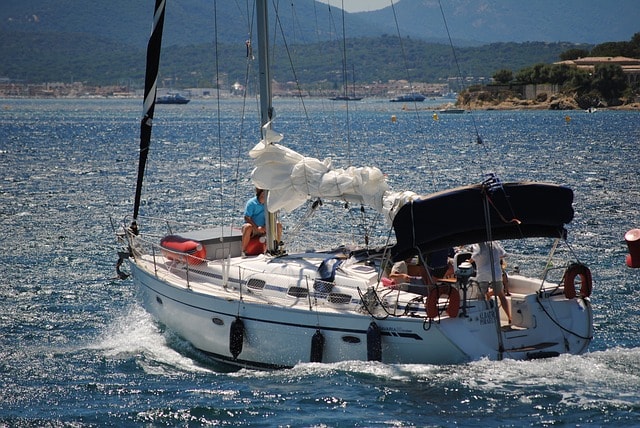
When it comes to sailing trips and holidays, a lot of people appear misinformed that it requires extensive knowledge of oceanic navigation as well as operating a boat.
The comforting truth, on the contrary, is that a sailing trip can be enjoyed by complete novices as much as any sailing pro.
Almost all yacht charter companies these days provide a skippered boat with a crew in addition to regular bareboat charters.
In other words, you can enjoy the freedom of being all by yourself in the serene blue ocean without any stress and responsibility.
In fact, in my early experiences on charter boats, I almost always had professional and experienced skippers in charge of navigation and operation. Even now, I often go on sailing holidays with a skipper on a yacht.
In this article, you can learn all about the benefits of hiring a skippered boat, tips to hire a professional and experienced captain, what you can legitimately expect from the skipper during your sailing trip as well as other relevant information.
Table of Contents
Responsibilities of the Skipper
The primary reason for chartering a skippered boat is to hand over the navigation and operation of the yacht to someone who has the necessary experience and knowledge.
In the case of your skipper, you can expect him to ensure the safe passage of the boat through responsible boat handling and safe seamanship.
In the case of a fully crewed yacht, the responsibilities of the skipper include making sure the crew understand and carry out their roles and duties.
The skipper is expected to maintain proper coordination among the crew.
To sum up, the tasks and responsibilities of a skipper are both technical and interpersonal. Apart from operating the boat and navigating it expertly, he should also ensure that the crew is obeying his command dutifully.
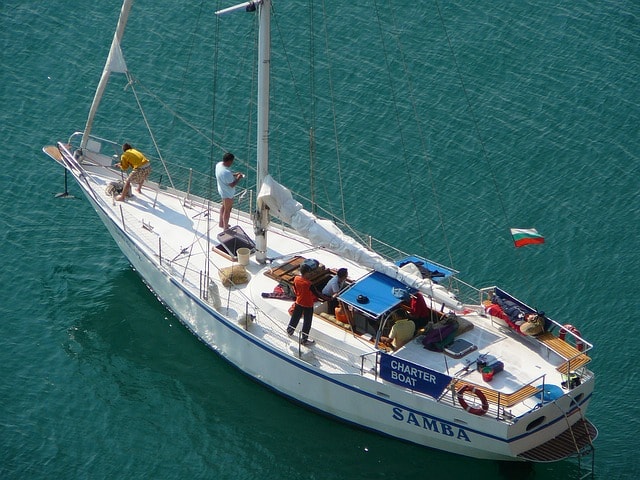
Who Should Choose the Option of a Skippered Yacht?
People with no or little sailing experience would have to choose the services of a professional and experienced skipper to make their trip a success.
Skippered yachts are perfect for those who do not possess a sailor’s license but want to partake in the fun of a sailing holiday.
Also, if you are part of a large group of friends and family, and want to leave the responsibility of sailing to the skipper to enjoy the trip in a stress-free manner, then you should certainly consider a skippered boat.
A skippered boat is also ideal for people who want to sharpen their sailing skill under the watchful eye of an experienced and professional sailor.
Even experienced sailors can benefit from professionally skippered boats if you want to partake in regattas and require that extra bit of help and professional knowledge.
Planning Your Itinerary With the Skipper
One of the best advantages of having a skippered boat comes from the help you would get in planning your sailing itinerary.
The skippers on particular routes have extensive knowledge of the best locations, coves, inlets, and beaches that you and your friends would enjoy during the trip.
They can help you plan the sailing trip in a way that makes it possible for you to see and experience the most during your trip.
Also, skippers are intimately aware of the prevailing weather conditions and may help you tweak your itinerary in such a way that adverse weather does not mar your holiday.
Last, but not the least, skippers know the best and cheapest places to moor the boat so that you do not spend extra at expensive marinas.

Does the Yacht Charter Price Include in Skipper’s Fees?
Yacht charter companies do not include the fees payable to a skipper when you lease their boats.
The fees commanded by the skipper is typically done at the base office, while the invoice for the same is generated and handed over to you after the completion of the trip.
The yacht charter companies only advertise the cost of hiring their boat, without the crew, complements, and skipper, on their brochures and websites.
Accommodation for Skipper Aboard the Boat
It is required that you reserve one of the cabins for skipper and his crew to rest and sleep in during your sailing trip.
Typically, a lot of boats have a special version for charter companies featuring extra cabins so that more people can be accommodated on the boat.
It is not required that you reserve the stateroom or other luxurious cabins for the crew. Typically, yachts come with a dedicated cabin for crew and feature bunk beds.
Who is Responsible for Skipper’s Meals?
It is customary that skippers be provided meals along with the crew by the chartering party. There is no requirement that the food should be fancy or gourmet quality, and the crew and skipper would typically eat whatever you serve.
During your trip ashore in the middle of your sailing holiday, it is considered nice to take the skipper to restaurants along with you.
However, there is no such requirement or custom, and you may just hand him enough cash for a meal at the local fast food joint.
Do’s and Don’ts for Skipper on Board the Yacht
As mentioned above, the primary role of the skipper on board the boat is to ensure a safe and enjoyable trip for everyone.
This means taking care of the technical aspects of sailing, including the correct deployment of mast and sails, safe moorings, checking the weather conditions, guiding the crew, and advise on the route.
The skipper, however, is not obligated to take the route preferred by you if they deem it dangerous due to any reason, including weather.
Similarly, you should not expect the skipper to perform menial tasks such as cleaning.
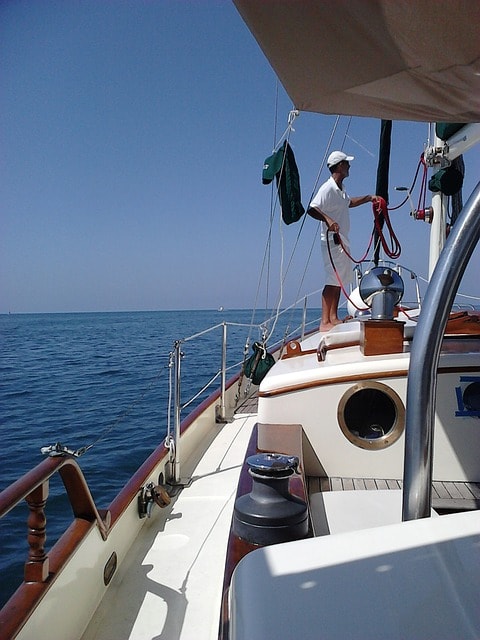
Cost of Hiring a Skipper
The cost of hiring a skipper dependent on some factors including his professional experience, the region you are sailing in, and the sailing season.
On an average, you should expect to pay between Euro 90 to 150 for each day of your sailing trip.
How to Tip the Skipper?
It is customary to tip the skipper at the end of the sailing trip. Typically, the tip works out to 10 percent of his total sailing fee.
However, if you liked his services and recommendations, then you may tip generously. The skipper will certainly appreciate it.
Advantages of Hiring a Skipper
Probably the best part of having a skippered boat is that it allows you to get the most out of your sailing holiday.
- In my personal experience, I have noticed that the presence of a professional and experienced skipper enabled us to plan our itinerary better.
- Many times, the skipper’s intimate knowledge of the local coastline and weather helped us see places that we did not expect and avoid rough weather.
- Skippers know the best places to eat during your trips ashore and have their own local sources to recommend the best places to see and visit.
- Also, you can truly enjoy a stress-free and blissful holiday with your friends and family safe in the knowledge that your boat is in capable hands.
In Conclusion
Skippered boats are probably a perfect way to introduce the joy of sailing holidays to those who have not experienced it before.
Even among those with sufficient sailing experience, there are a lot of benefits to having an experienced skipper in charge of the yacht.
There is no doubt that an experienced sailor would help you get more out of your holiday in every sense of the term. While it may be slightly costlier than bareboat charters, a skippered boat is certainly worth its price.
Need a skipper on your boat? Send your inquiry now, and you’ll receive a free skippered yacht charter quote!
Want to Know More Tips?
Sign up to Cruising Sea newsletter to receive every two weeks the latest post straight to your inbox!
Have you already hired a skipper? If so, what was your experience? Please feel free to share it by leaving a comment just below, I’ll be glad to hear your feedback:)

Daniella has been passionate about travel, the sea, and nature for many years. As a child, she frequently traveled throughout the Mediterranean and continued with her journeys throughout her adult life.
Her experiences have created the desire within her to share her love for traveling with other passionate and adventurers who want to discover beautiful horizons and new cultures.
7 thoughts on “Skipper on a Yacht – The Ultimate Guide”
Hi Daniella,
I just found out that I can charter a yacht with a skipper commandeering it. I was reluctant to go to the sea because I thought I have to go to a “sea” school first.
Especially, when you watch all the Hollywood movies that portray you can go on a cruise without a skipper. And then comes the storm. YUCK!
Now I can safely plan my trip with the skipper’s help. Thank you for bringing this to my attention and corrected my misinformation.
No problem. it’s a pleasure for me to inform the readers, this is the purpose of the website:)
I am happy that the misinformation has been cleared up! And, indeed, you can plan in complete tranquility your next trip with the help of a skipper, believe me, it is worth it:)
Thank you for the comment and wish you a nice day!
Thanks for the information on skippers on a yacht. I have never been on a yacht before and know very little about them except what they look like and are used for! So i enjoyed learning about the skipper as never actually heard that term before. It’s something that i would love to do one day, And the pictures make it seem like it is an amazing experience to have. Maybe one day!
Having a skipper on board is something fabulous:) You don’t need to worry about the navigation at all. They also know the environment well so you can count on him to bring you to best places as well:) Isn’t great?
Thank you for the comment and wish you a wonderful day!
Thank you for visiting my website and for the comment:) To answer your question, most charter companies offer to the client the option to hire a skipper for their sailing holiday. Skippers are not included in the price as they work independently and the cost per day will vary between 120 to 150 Euro, some, even more, depending on the skipper skill. If you own a yacht and you wish to hire a skipper, you can find one at “ Delivery Captain ” I hope it helped and if you need more information, feel free to contact me at any time, I’ll be more than happy to assist!
Have a wonderful day!
I really like your comment about how an experienced sailor would help you get more out of a holiday than sailing on your own. I imagine it would also be a good idea to work with a skipper if you plan to buy your own yacht as well, even if you plan on learning to sail (someone has to teach you, after all). I imagine that a skipper would have a lot of good information about different services as well, like yacht delivery if you plan to move for example.
I am glad you like the comment, thank you for the kind feedback:) Oh, yes, definitely, a skipper will not just navigate the boat, but he will also teach you a lot of things and will bring you to places you don’t know. A skipper is someone you can rely on!
Thank you again for the comment and wish you a wonderful day!
Leave a Comment Cancel reply
By using this form you agree with the storage and handling of your data by this website. *

{{getTranslation('widget-collection-tabs-'+cart.steps[cart.activeStep].label)}}
{{getTranslation("widget-collection-labels-noItems")}}
- {{getTranslation('widget-collection-tabs-'+value.label)}}
| {{getTranslation('widget-collection-table-labels-name')}} | {{getTranslation('widget-collection-table-labels-number')}} | {{getTranslation('widget-collection-table-labels-type')}} | {{getTranslation('widget-collection-table-labels-bruttoWithTax')}} | {{getTranslation('widget-collection-table-labels-bruttoWithoutTax')}} | {{getTranslation('widget-collection-table-labels-discountWithTax')}} | {{getTranslation('widget-collection-table-labels-discountWithoutTax')}} | {{getTranslation('widget-collection-table-labels-nettoWithTax')}} | {{getTranslation('widget-collection-table-labels-nettoWithoutTax')}} | {{getTranslation('widget-collection-table-labels-taxPiece')}} | {{getTranslation('widget-collection-table-labels-quantity')}} | {{getTranslation('widget-collection-table-labels-totalPriceWithTax')}} | {{getTranslation('widget-collection-table-labels-totalTax')}} | {{getTranslation('widget-collection-table-labels-totalPriceWithoutTax')}} | |||
|---|---|---|---|---|---|---|---|---|---|---|---|---|---|---|---|---|
| --> --> | --> | --> | --> |
Min. amount: {{r.minAmount}} - Cost: {{r.cost}} {{cart.shipping.currency}}
--> {{getTranslation("widget-collection-labels-totalToPay")}} {{cart.prices.totalToPay | number:2}} {{collectionConfiguration.currency}} --> --> {{getTranslation("widget-collection-labels-totalToPay")}}: {{cart.prices.totalToPay | number:2}} {{collectionConfiguration.currency}}
{{gettranslation("widget-collection-labels-addressessummarytitle")}}.
- {{getTranslation("widget-collection-labels-agb-product")}}
- {{getTranslation("widget-collection-labels-agb-turn")}}
- {{getTranslation("widget-collection-labels-agb-exam1")}}
- {{getTranslation("widget-collection-labels-agb-exam2")}}
Vielen Dank für deine Bestellung!
Eine Auftragsbestätigung mit allen Details deiner Bestellung wird in Kürze an deine E-Mail-Adresse gesendet.
Merci beaucoup pour ta commande !
Une confirmation de commande avec tous les détails de ta commande sera envoyée sous peu à l'adresse e-mail que tu as indiquée.
{{getTranslation("widget-collection-labels-paymentMethods-inovice-hint", itemsFiltered().length)}}
Generalversammlung
Ende 22.10.2021 10:00
Produkt: Teilnahme als Gast
{{c.nettoWithTax | number:2}} {{collectionConfiguration.currency}}
{{getTranslation("widget-collection-table-labels-quantity")}} : {{c.F_QUANTITY}}
{{c.totalPriceWithTax | number:2}} {{collectionConfiguration.currency}}
| {{getTranslation('widget-collection-table-labels-name')}} | {{getTranslation('widget-collection-table-labels-number')}} | {{getTranslation('widget-collection-table-labels-type')}} | {{getTranslation('widget-collection-table-labels-bruttoWithTax')}} | {{getTranslation('widget-collection-table-labels-bruttoWithoutTax')}} | {{getTranslation('widget-collection-table-labels-discountWithTax')}} | {{getTranslation('widget-collection-table-labels-discountWithoutTax')}} | {{getTranslation('widget-collection-table-labels-nettoWithTax')}} | {{getTranslation('widget-collection-table-labels-nettoWithoutTax')}} | {{getTranslation('widget-collection-table-labels-taxPiece')}} | {{getTranslation('widget-collection-table-labels-quantity')}} | {{getTranslation('widget-collection-table-labels-totalPriceWithTax')}} | {{getTranslation('widget-collection-table-labels-totalTax')}} | {{getTranslation('widget-collection-table-labels-totalPriceWithoutTax')}} | |
|---|---|---|---|---|---|---|---|---|---|---|---|---|---|---|
| --> | ---> | --> |

CONDITIONS REQUISES POUR LES SKIPPERS CCS
Aperçu des exigences pour devenir skipper ou skipper ccs.
Tu veux devenir skipper au CCS? Que tu sois skipper 2 ou skipper 1, les deux qualifications requièrent une expérience théorique et pratique. Nous te donnons volontiers un aperçu des conditions requises.
- un permis hauturier de la catégorie correspondante, reconnu par la Suisse
- la confirmation (qualification) des compétences requises selon le chiffre 2.3 par la proposition d’un Skipper CCS lors d’une Croisière CCS de la catégorie correspondante
Afin d'acquérir une pratique suffisante dans le manoeuvre des yachts de mer, il est fortement recommandé de participer à une Croisière de Manoeuvres de la catégorie correspondante (yachts à moteur ou bateau à voile) avant la première croisière en tant que Skipper-2.
Il est également très recommandé d’acquérir un certificat d’opérateur radio (minimum SRC).
- une activité réussie en tant que skipper 2 durant 3 semaines sur au moins 2 croisières différentes et avec 2 propositions de différents skippers (qualifications) pour skipper 1
- l’expérience des mers à marées
- un permis radio reconnu internationalement (minimum Short Range Certificate SRC)
- une participation réussie à un Croisière de Manoeuvres de la catégorie correspondante (S ou M)
- la participation à un cours moteur diesel
- la participation réussie à la formation radar
- la participation au cours skipper CCS
- une participation réussie à une Croisière d’Encadrement CCS dans la catégorie correspondante S/M) sous la direction d'un Instructeur CCS qui n'a pas déjà proposé le candidat comme Skipper CCS.

vers le programme de croisière
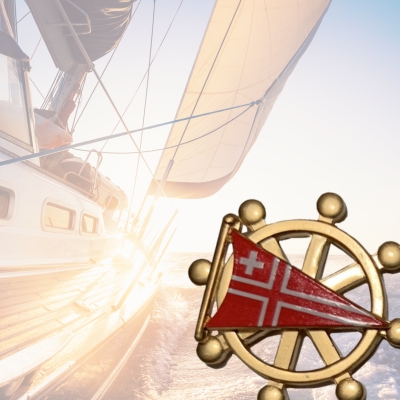
vers le cours skipper


IMAGES
VIDEO
COMMENTS
5. Rémunération du skipper. Le coût d'un skipper professionnel varie en fonction de la prestation ( convoyage, charter, perfectionnement), de la durée de la prestation, de la zone de navigation, de la taille du voilier et du nombre de passagers. Le tarif moyen en France est de minimum 300€ brut par jour ou environ 3.50€ du mille nautique.
Études / Formation pour devenir Skipper. En tant que professionnel de la voile, le skipper est le plus souvent déjà titulaire du BPJEPS activités nautiques, voire du DEJEPS.Renseignements auprès des Délégations académiques à la jeunesse, à l'engagement et aux sports ()Pour devenir skipper professionnel, il faut obligatoirement être titulaire du brevet de capitaine de 200 voile de ...
Le brevet de Capitaine 200, issu de la Marine Marchande, est le plus répandu en France. Le Capitaine 200 est un titre de navigation professionnelle qui permet de naviguer en tant que skipper sur des bateaux à moteur jusqu'à 200 tonneaux de jauge brute, c'est-à-dire des bateaux de taille moyenne (~24 mètres). Il est limité à 20 milles des côtes.
Métier Skipper : missions, formations et salaire. Le métier de skipper est une profession passionnante qui allie navigation et aventure. Découvrez tout ce qu'il faut savoir sur le métier de ...
The cost of a professional skipper varies according to the service (boat delivery, charter, coaching), the duration of the service, the sailing area, the size of the boat and the number of passengers : For charters, the remuneration is a daily rate. Example : In Croatia, a skipper is paid at least 240€/day ; In France, 300€/day ; In Saint ...
La formation pour devenir skipper permet l'obtention du brevet de capitaine 200 voile. Ce brevet est un titre polyvalent de niveau IV, délivré sous plusieurs conditions : ... tandis que les sociétés de location de yachts et les organisations de courses offrent des opportunités variées. La diversité des employeurs potentiels est à la ...
Cette certification vous permettra d'explorer la navigation côtière à bord de yachts de taille modeste. Accumulez les heures de navigation requises et réussissez un examen rigoureux pour atteindre ce premier échelon. La certification Capitaine 200 marquera vos débuts en tant que capitaine de yacht qualifié.
Qui veut devenir skipper est donc tenu de passer par un parcours assez fastidieux. Le diplôme requis pour passer skipper a été récemment renommé en « Capitaine 200 Voile » ou C200V en abrégé. ... Les voiliers et yachts auront toujours besoin de capitaine. En revanche, il est bon de se prévoir une deuxième casquette, car il n'est ...
1. Quels sont les diplômes et brevets nécessaires pour devenir skipper. Pour pouvoir exercer la fonction de Skipper professionnel, c'est à dire, assurer un commandement de manière rétribuée, il faut y compris en plaisance, être titulaire d'un brevet de Capitaine.C'est du moins le cas à bord d'un bateau français.
Le cours s'adresse à tous ceux qui souhaitent diriger une croisière en tant que skipper pour la première fois. Pour les futurs skippers du CCS, la participation au cours de skipper est obligatoire. Objectif. Formation complémentaire pour skippers de bateaux, sur les thèmes principaux suivants: Devoirs et compétences du skipper.
Call 0208 324 3118 Email [email protected]. Training in Croatia Training in Greece Training in the UK. Seafarer Sail training offers a RYA courses and advice on how to become a qualified yacht skipper. From Competent Crew, Day Skipper and Costal Skipper.
The term "skipper" holds a prominent place in the world of boating and sailing, representing the individual tasked with the operation, navigation, and overall management of a vessel.Whether it's a small boat, a luxurious yacht, or a sailing dinghy, the skipper plays a crucial role in ensuring the safety and smooth functioning of the maritime journey.
1. Être skipper en France. Le statut de skipper en France implique d'exercer une activité professionnelle directement liée à l'exploitation d'un navire (Décret n° 2015-454 du 21 avril 2015 et art. L. 5511-1, 3° et 4° du Code des Transports).Un skipper, pour exercer en France, doit remplir plusieurs conditions obligatoires : . Avoir 16 ou 18 ans pour le travail de nuit; et 20 ans ...
A good skipper will prevent boredom and apathy by agreeing daily routine maintenance tasks and helping to develop projects that improve the yacht and teach useful skills on board. A good skipper ...
You will need to cover the cost of the boat, together with mooring and fuel, and then decide whether to include food, meals out, and drinks. I find that the simplest option is to share all the costs equally, and the first step is to prepare a rough budget so people have an idea of how much the trip is going to cost.
In the case of a fully crewed yacht, the responsibilities of the skipper include making sure the crew understand and carry out their roles and duties. The skipper is expected to maintain proper coordination among the crew. To sum up, the tasks and responsibilities of a skipper are both technical and interpersonal.
Answer 1 of 6: Hi, I am travelling with my 10 years old son on transiberian train and will make a few stops on the way. I wonder how many days to stop and what to see in Yekaterinburg ? Thanks
The following other wikis use this file: Usage on af.wikipedia.org Jekaterinburg; Usage on alt.wikipedia.org Екатеринбург; Usage on an.wikipedia.org
APERÇU DES EXIGENCES POUR DEVENIR SKIPPER OU SKIPPER CCS . Tu veux devenir skipper au CCS? Que tu sois skipper 2 ou skipper 1, les deux qualifications requièrent une expérience théorique et pratique. Nous te donnons volontiers un aperçu des conditions requises. ... Afin d'acquérir une pratique suffisante dans le manoeuvre des yachts de ...
Yekaterinburg [a] is a city and the administrative centre of Sverdlovsk Oblast and the Ural Federal District, Russia.The city is located on the Iset River between the Volga-Ural region and Siberia, with a population of roughly 1.5 million residents, [14] up to 2.2 million residents in the urban agglomeration. Yekaterinburg is the fourth-largest city in Russia, the largest city in the Ural ...
14. Visit the Old Water Tower. Source: Photo by Wikimedia Commons user Dom kobb used under CC BY-SA 3.0. The old water tower is one of Yekaterinburg's oldest structures dating back to the 1800s and stands as a monument of industrial architecture. It is one of the city's endearing symbols.